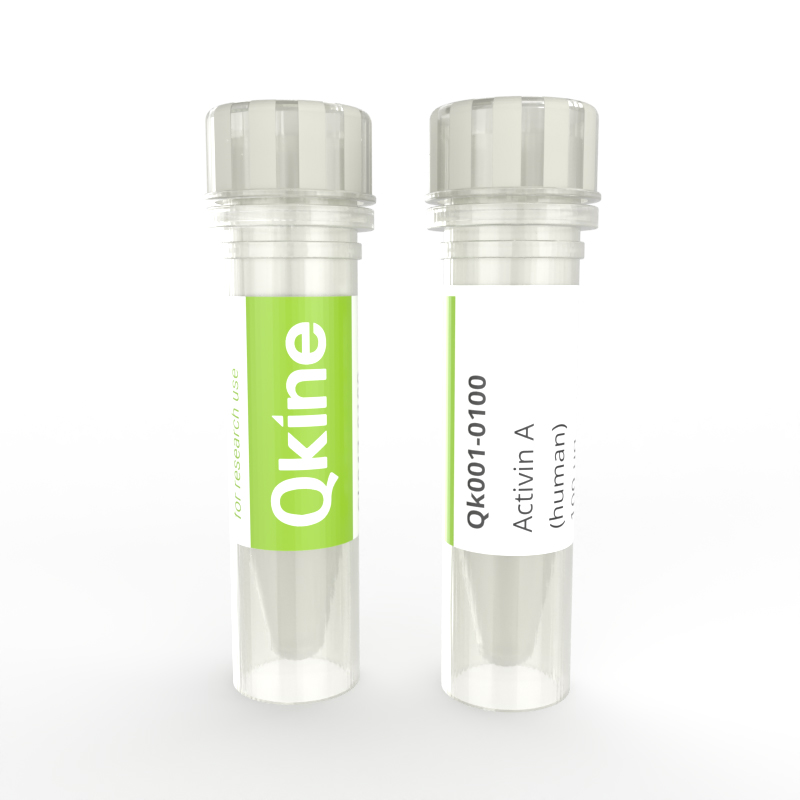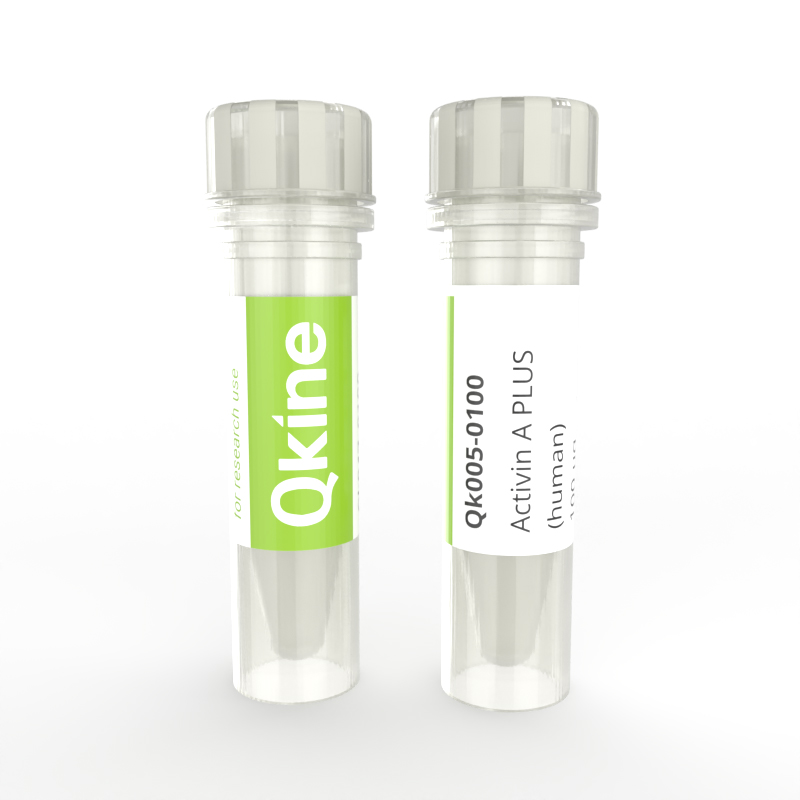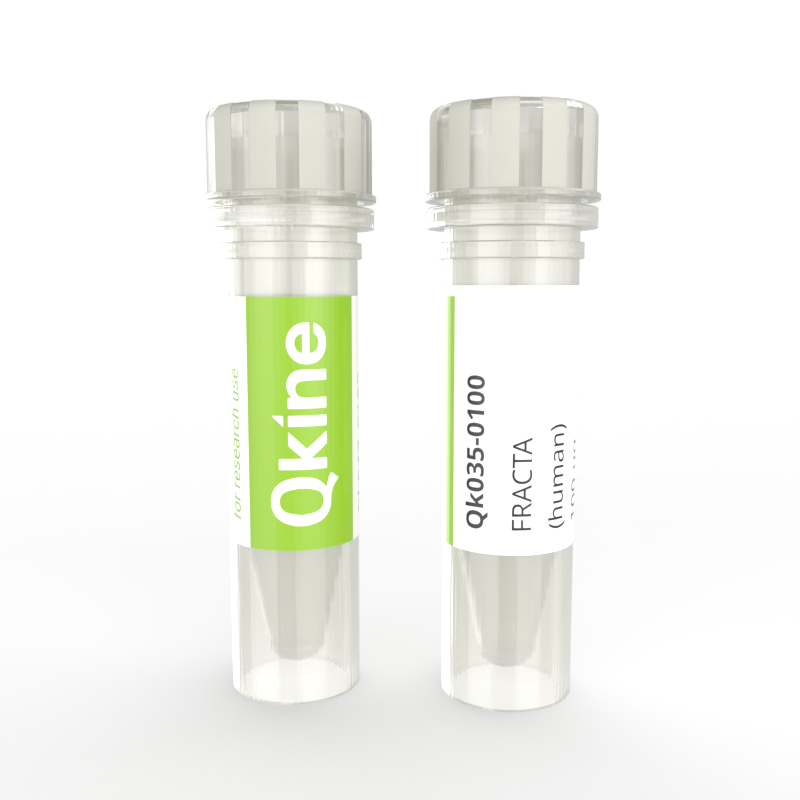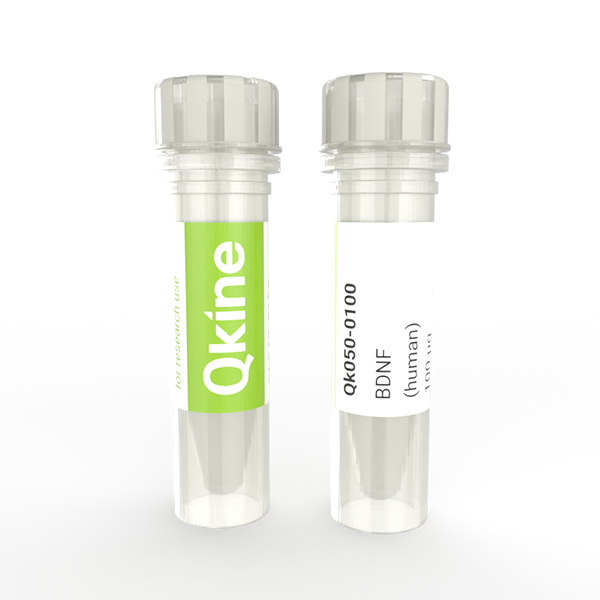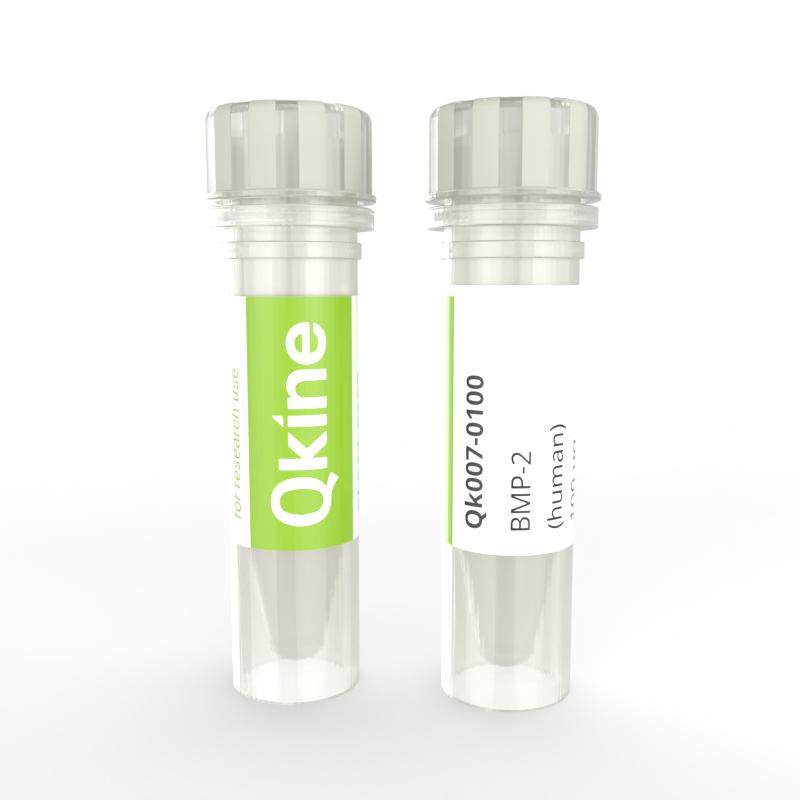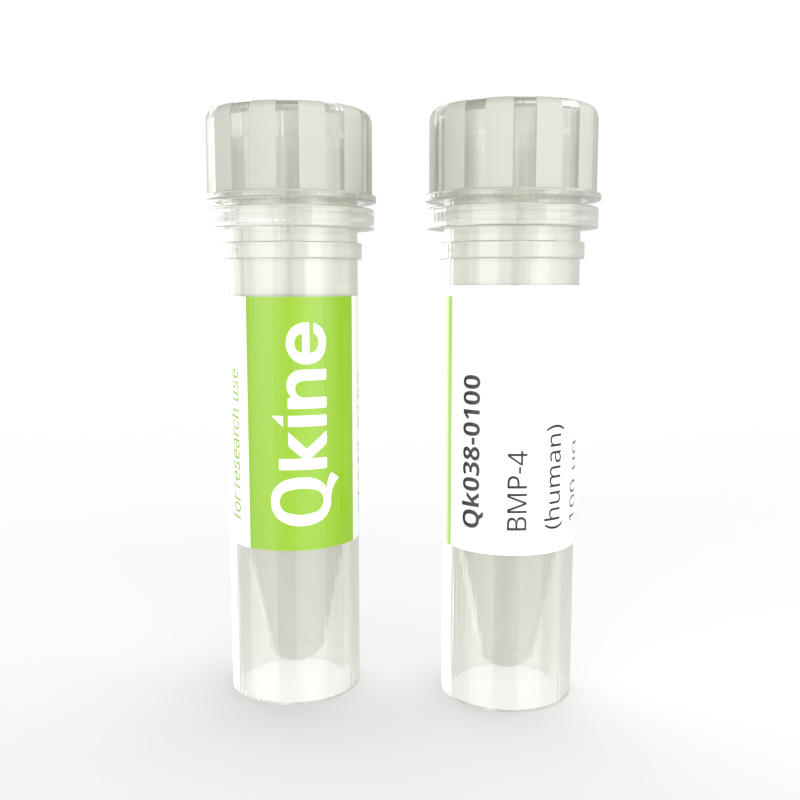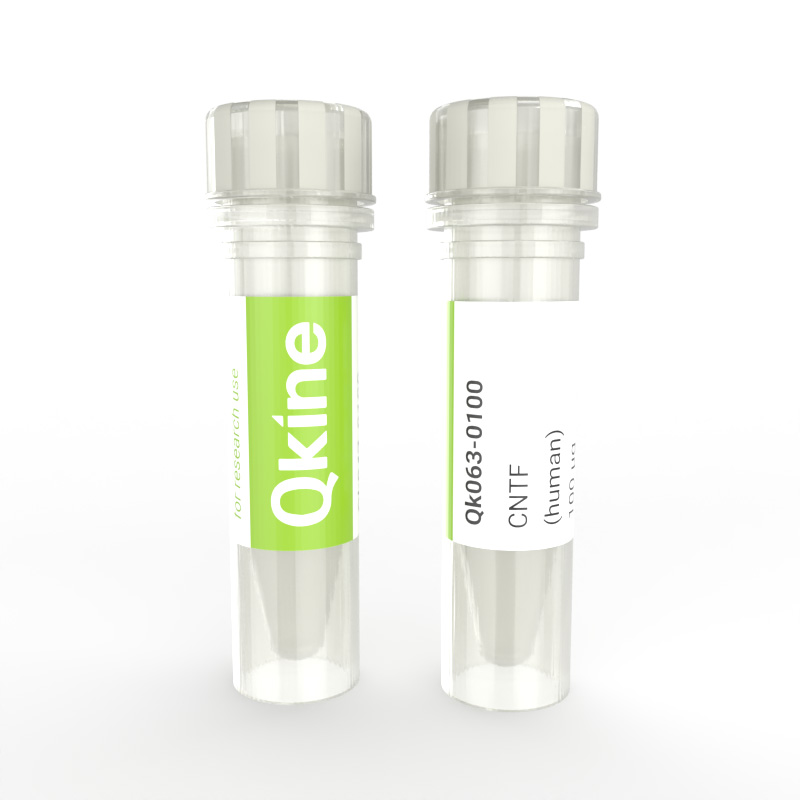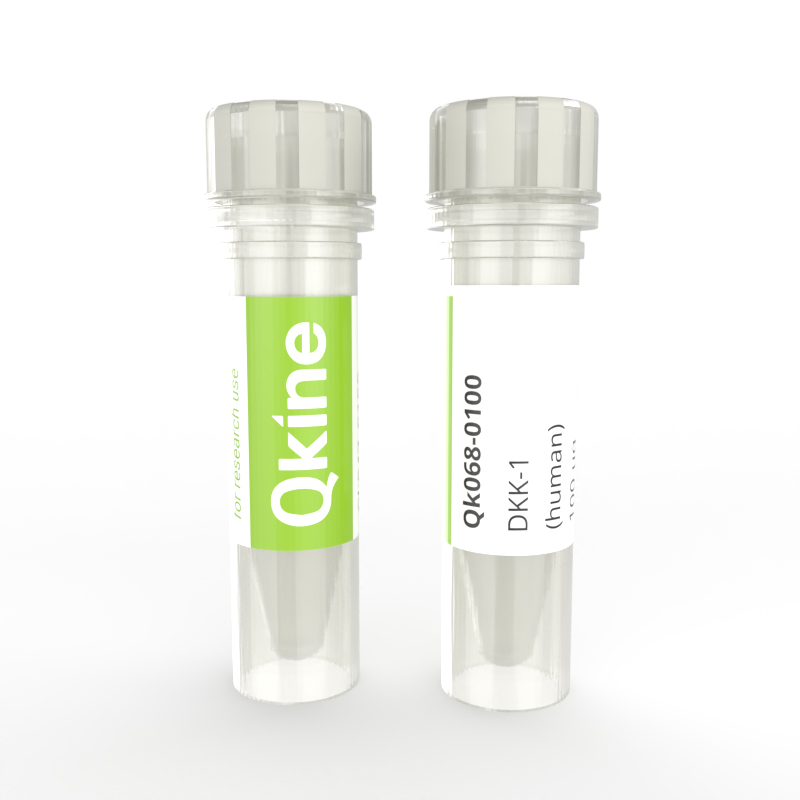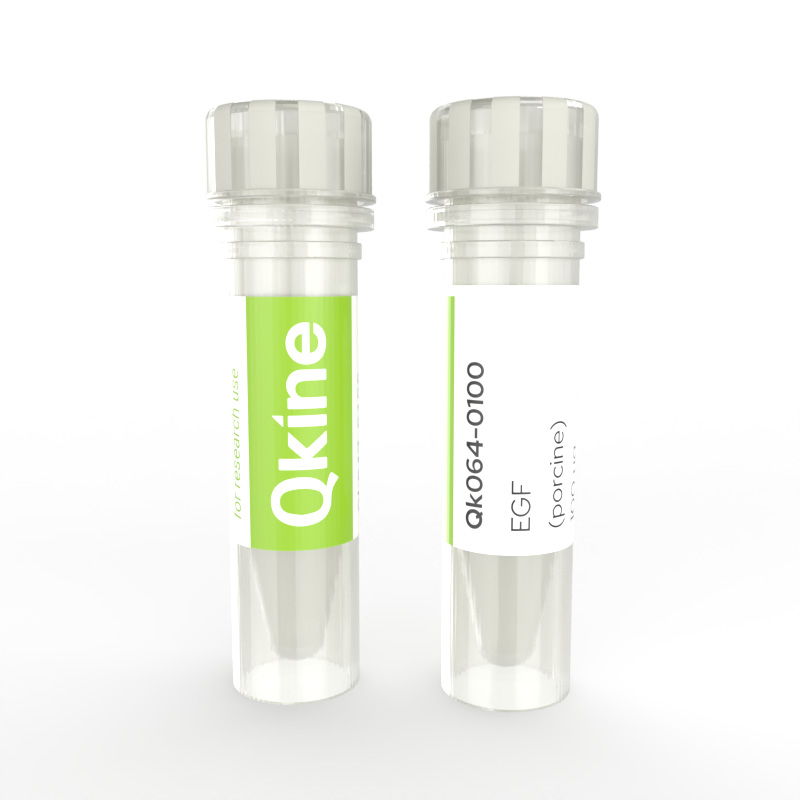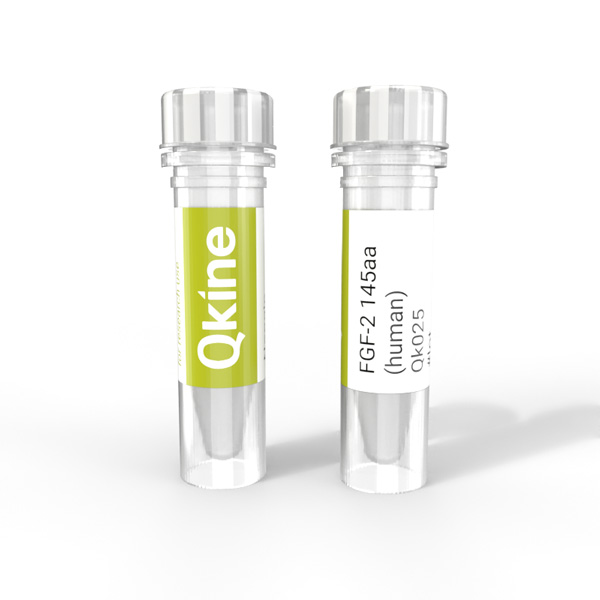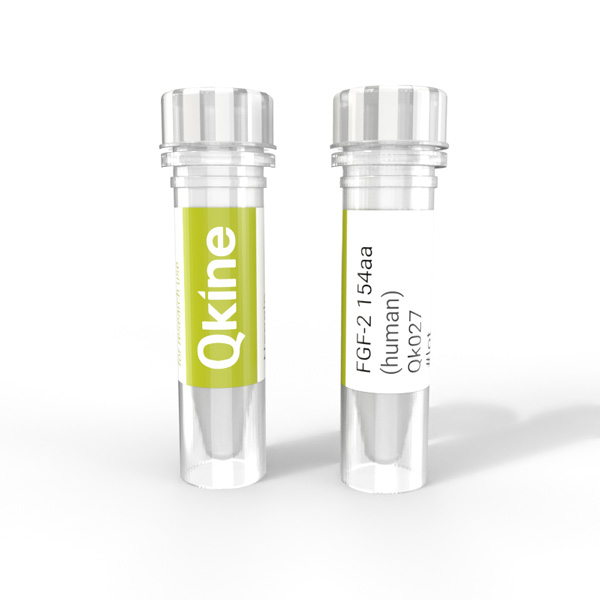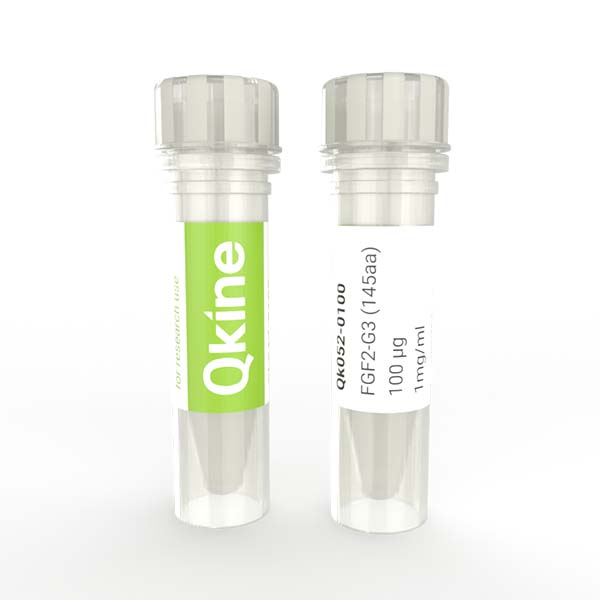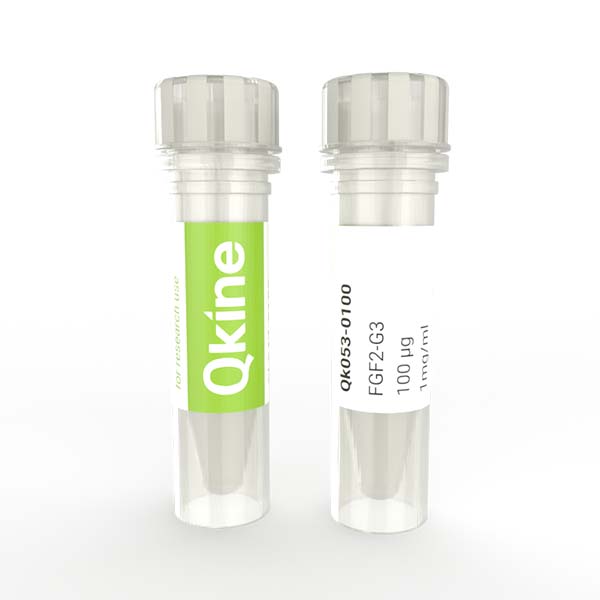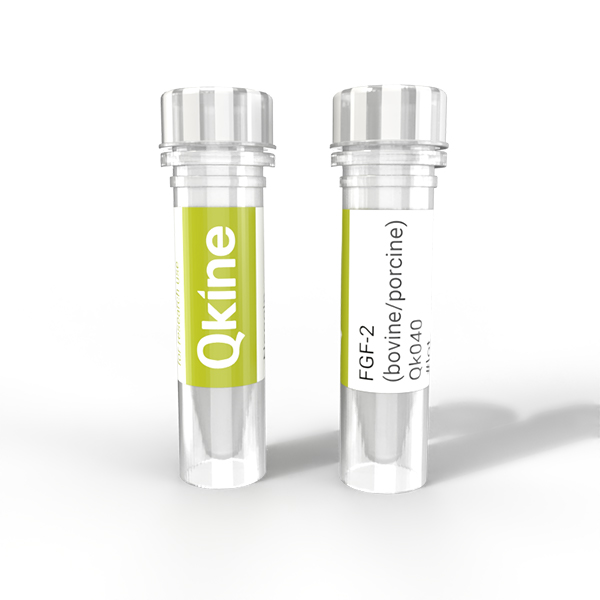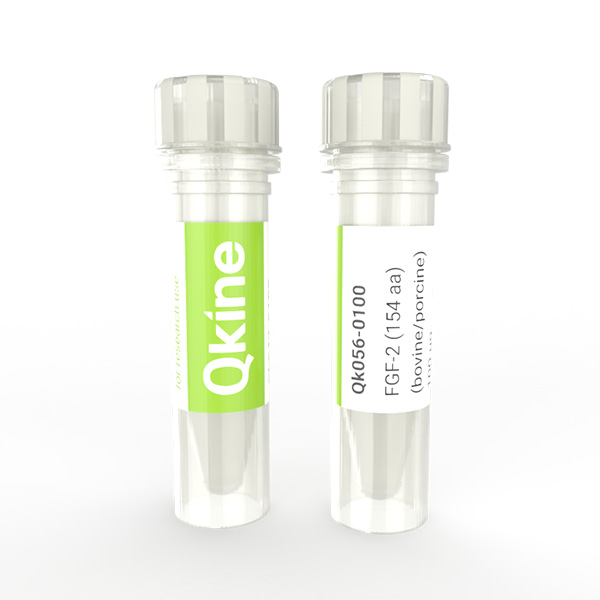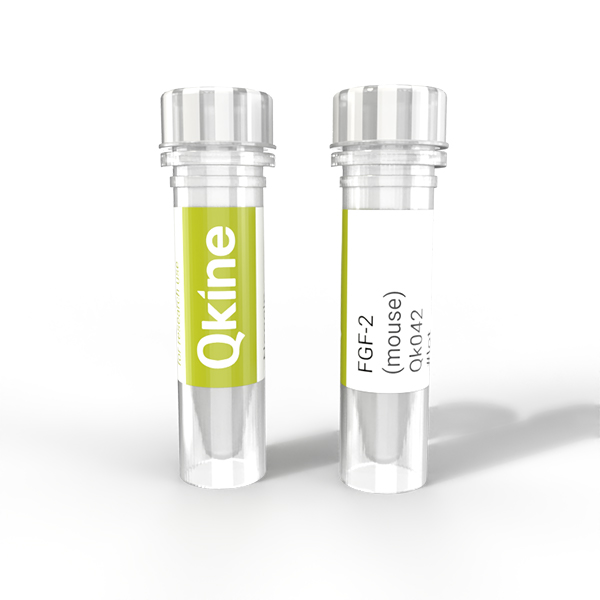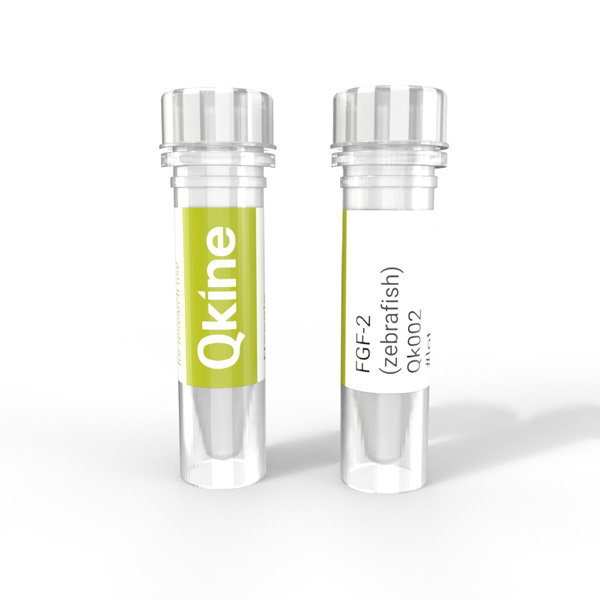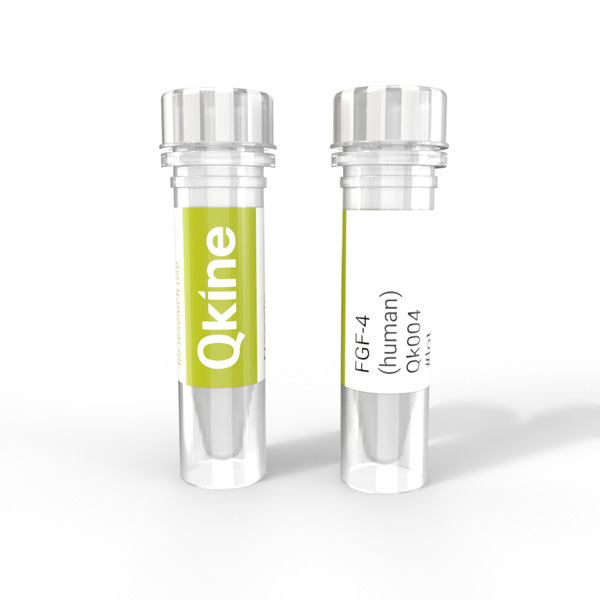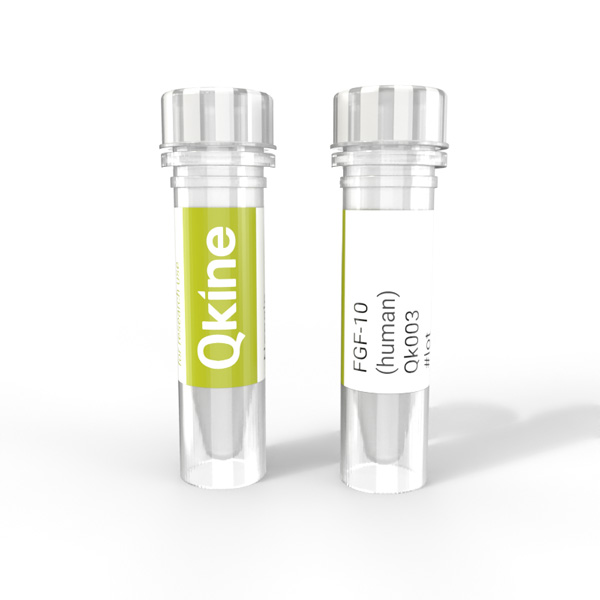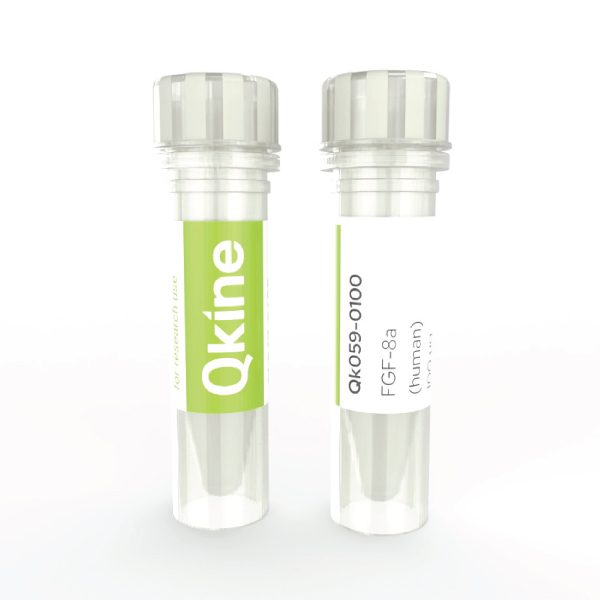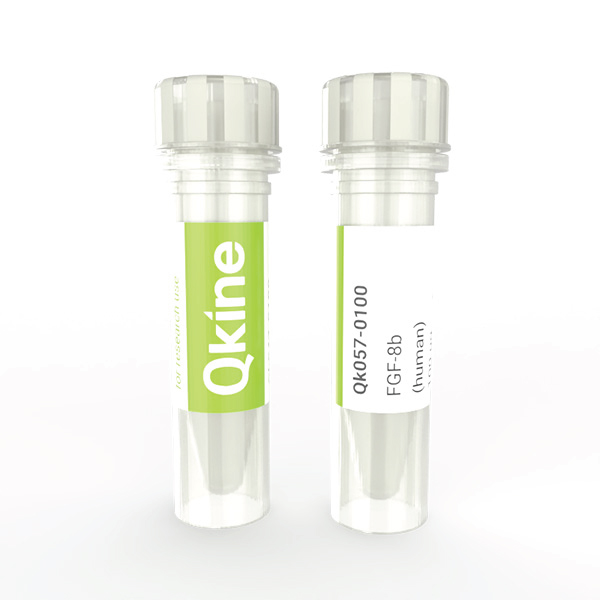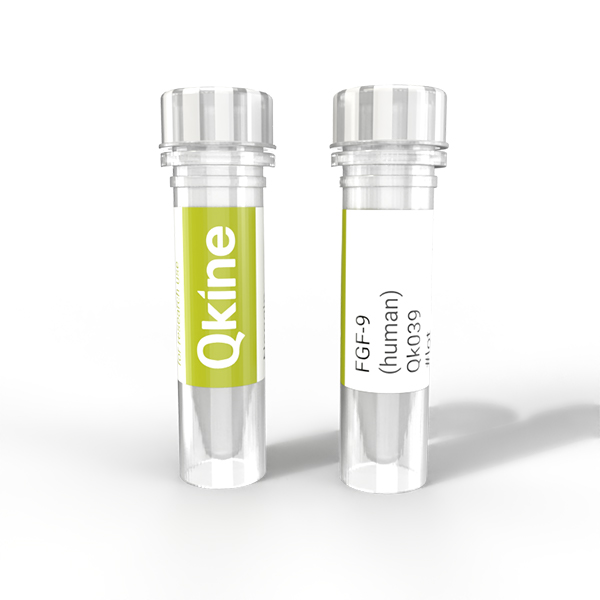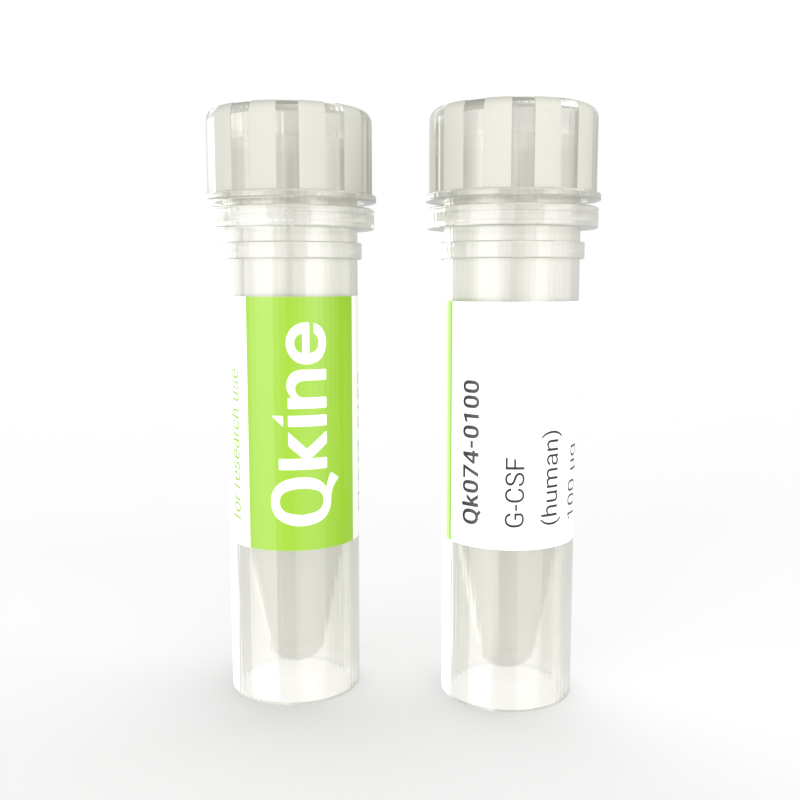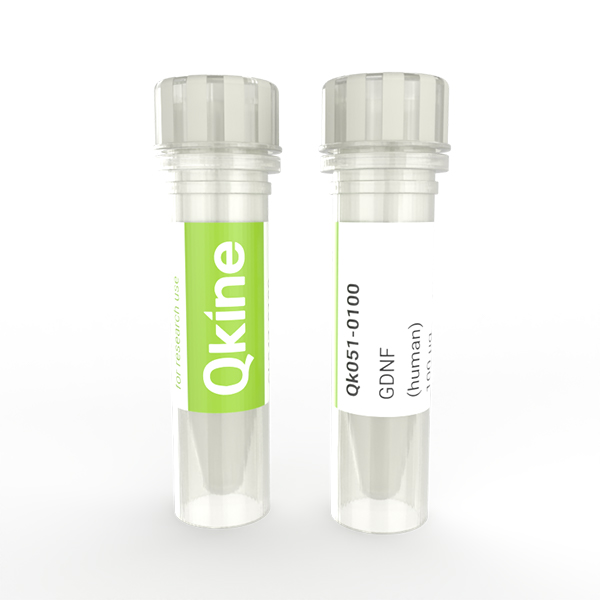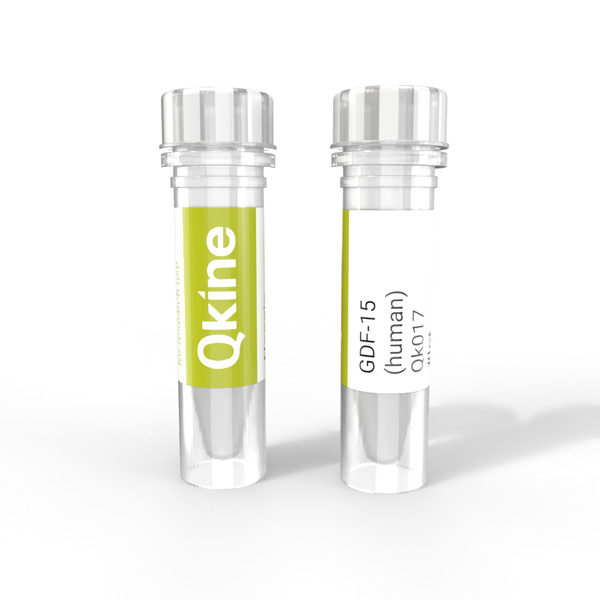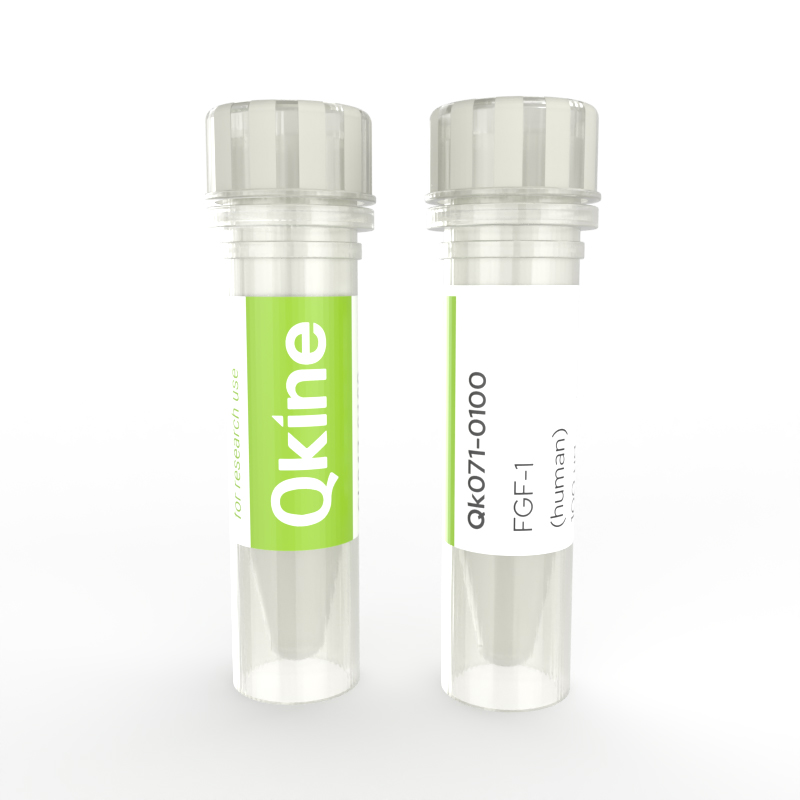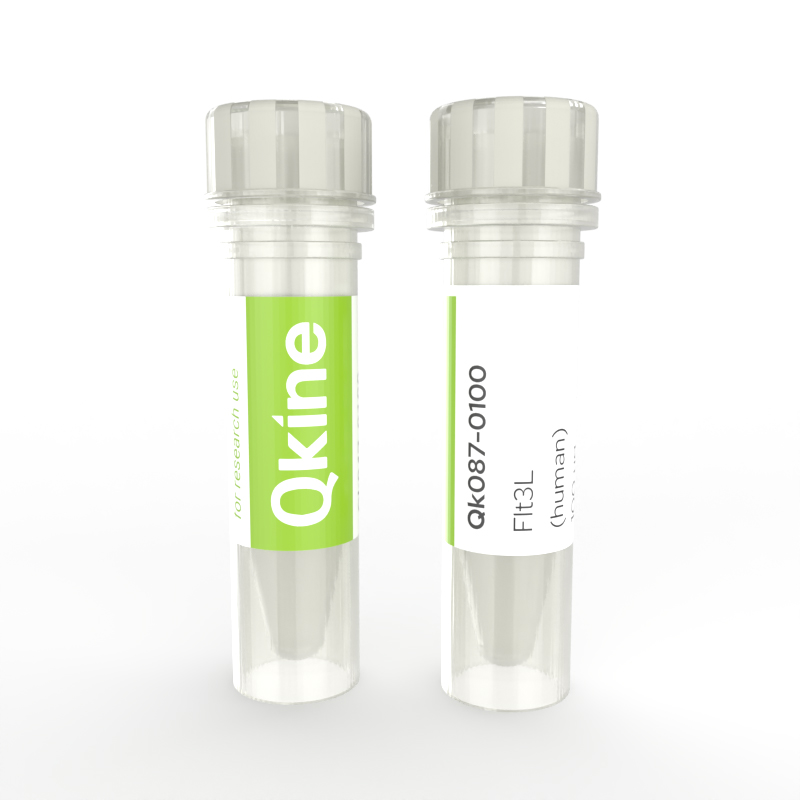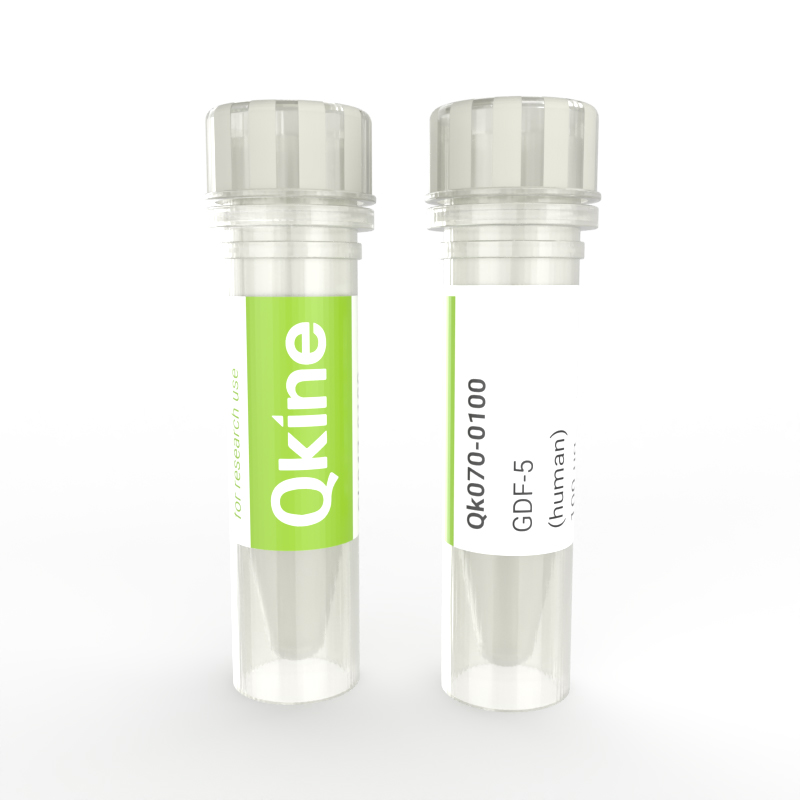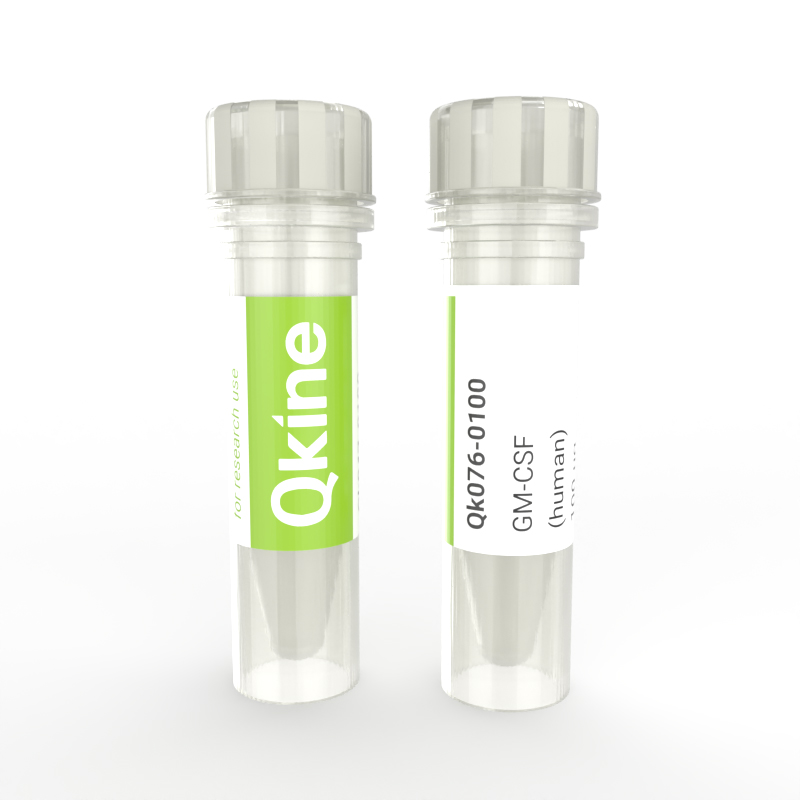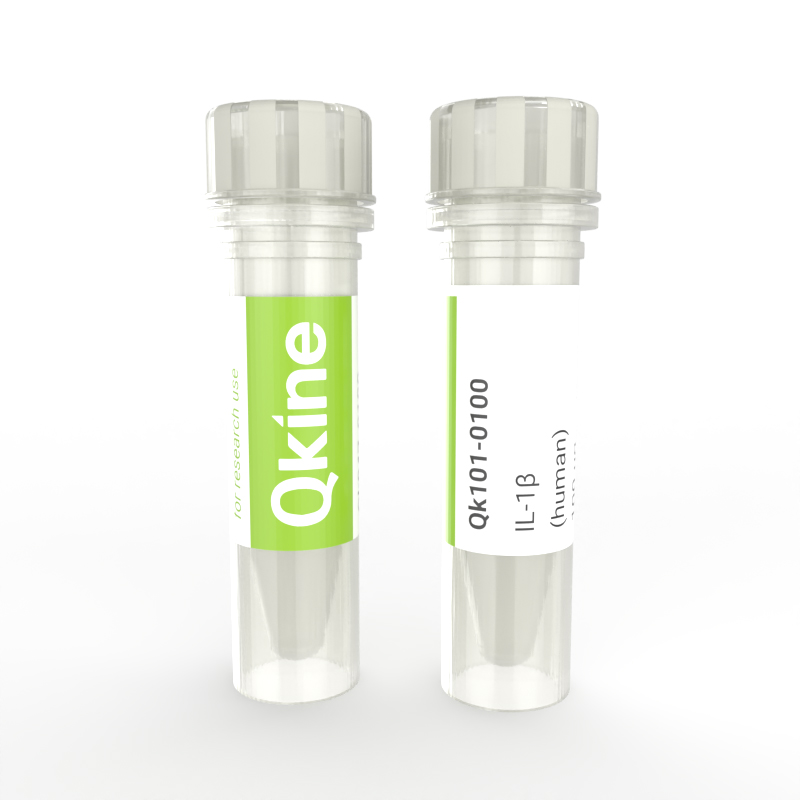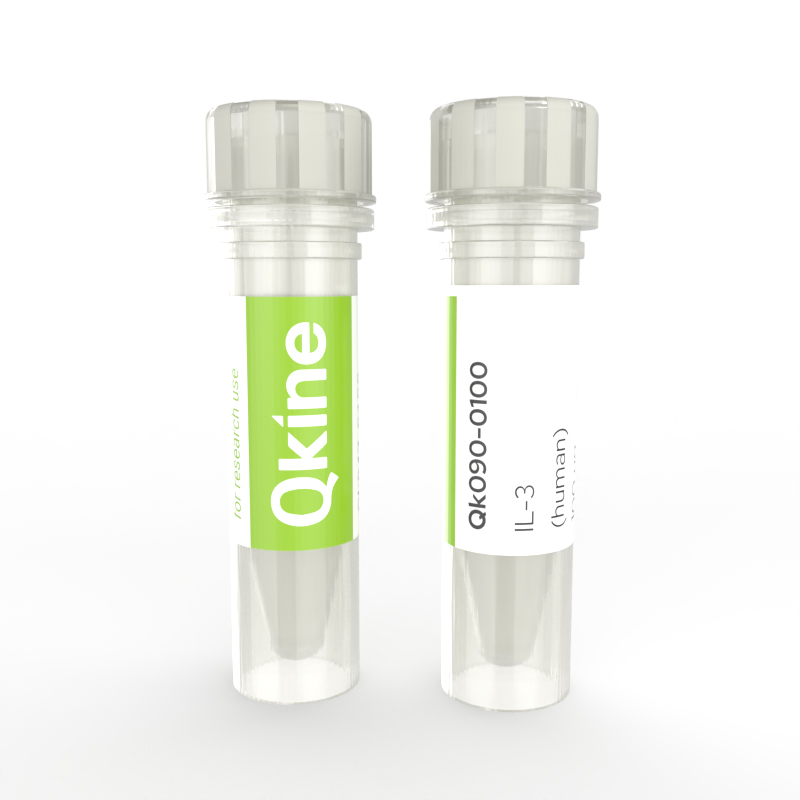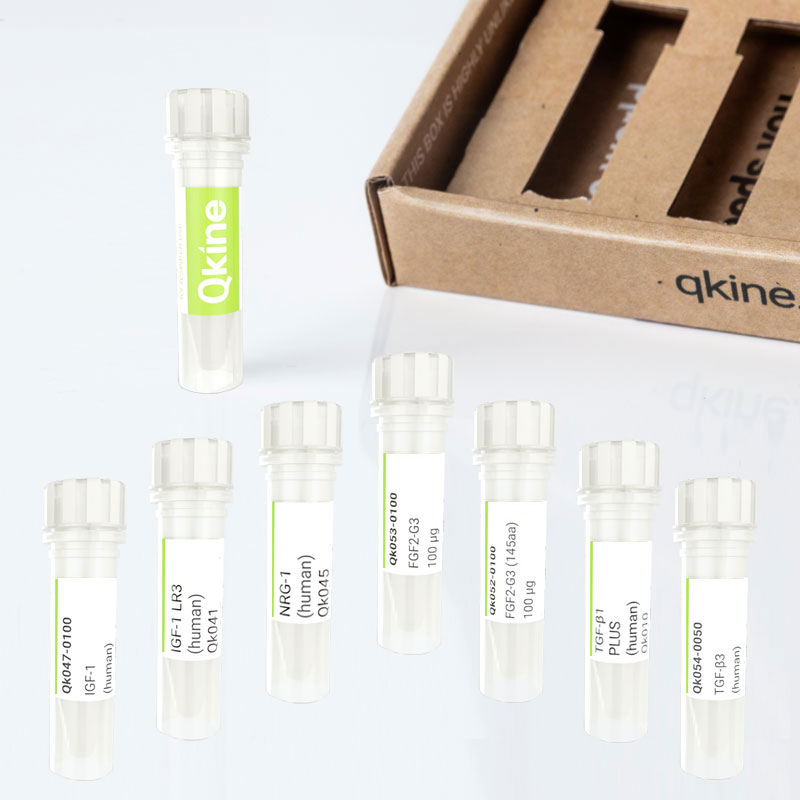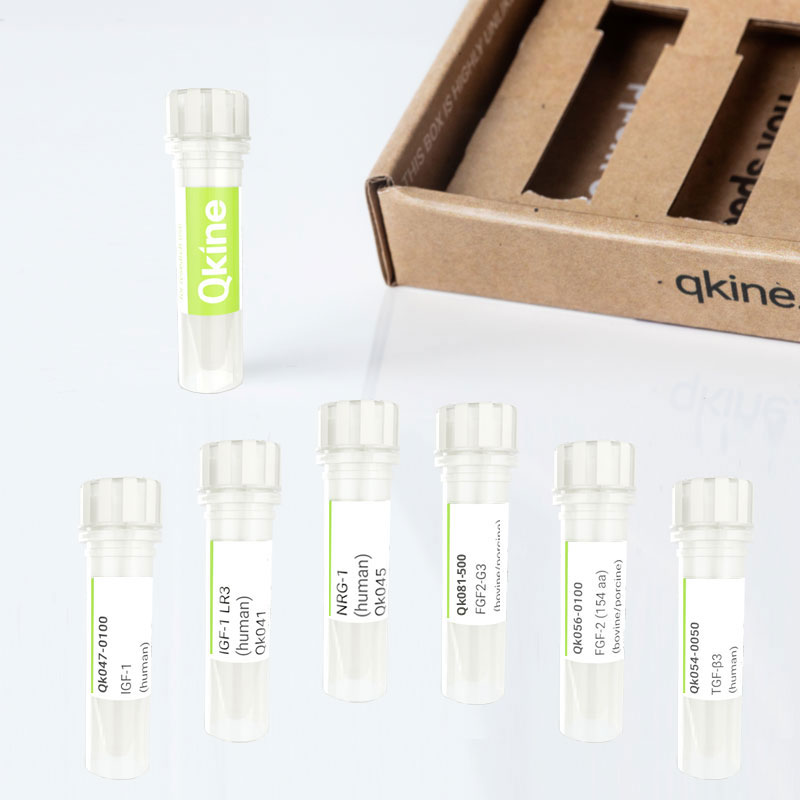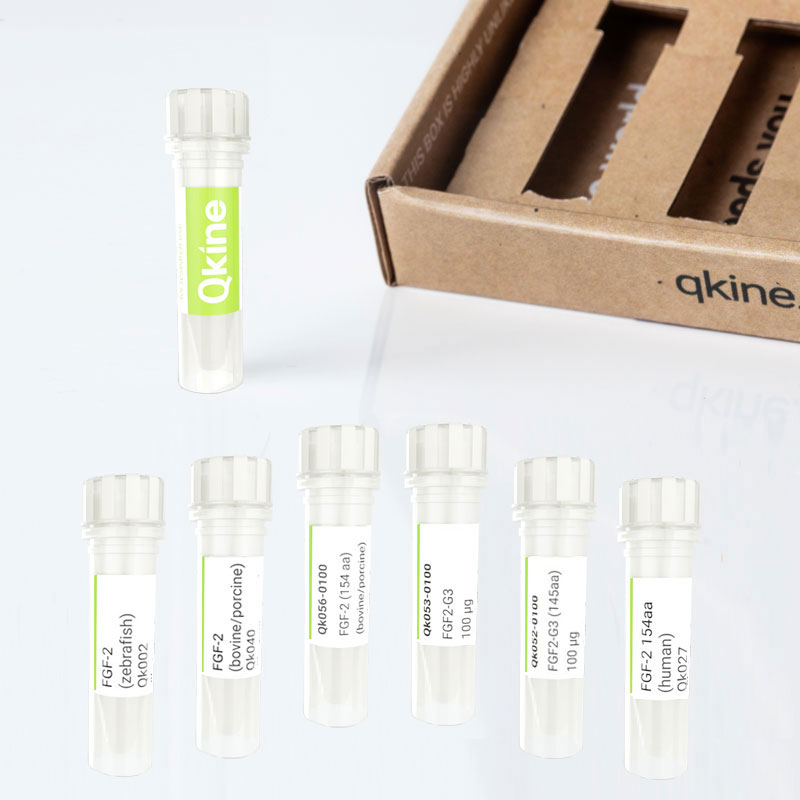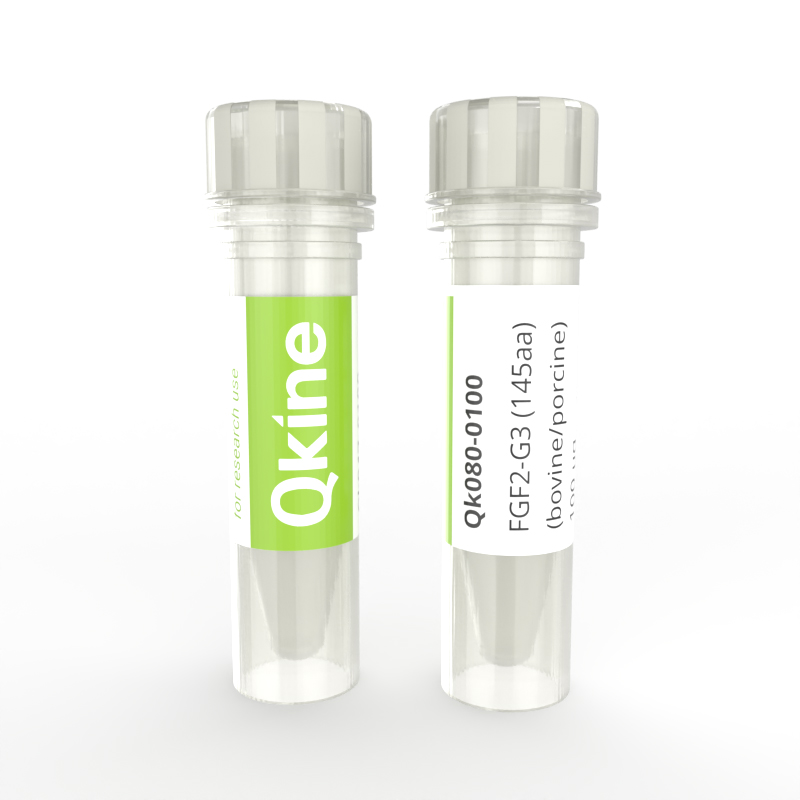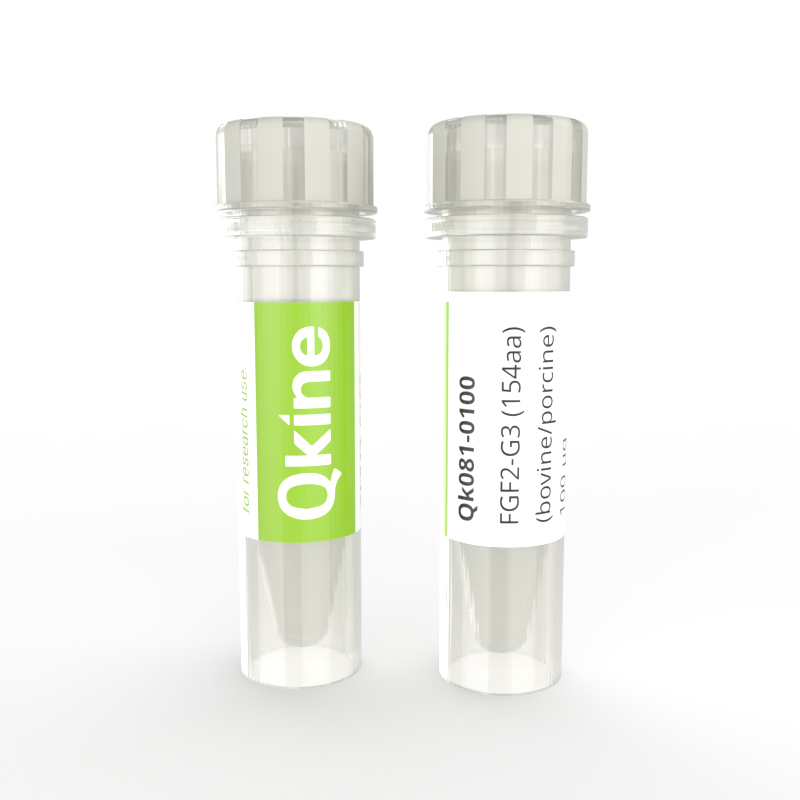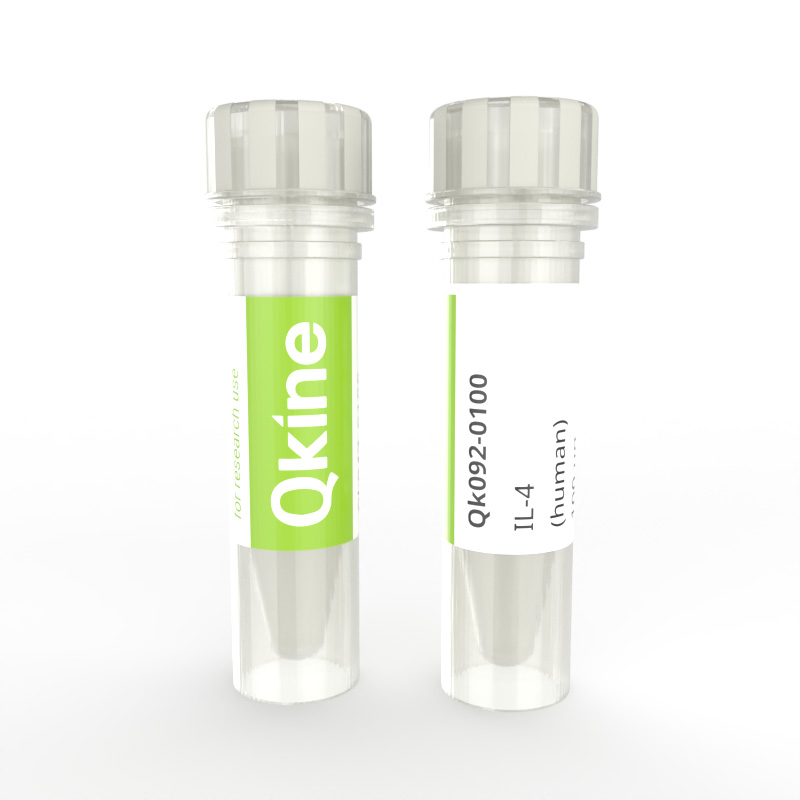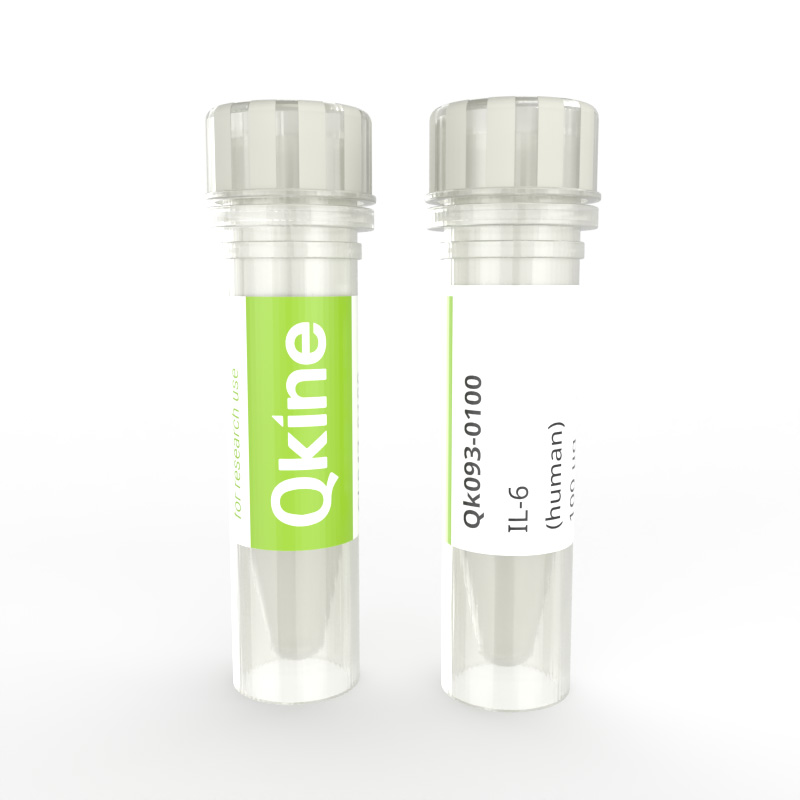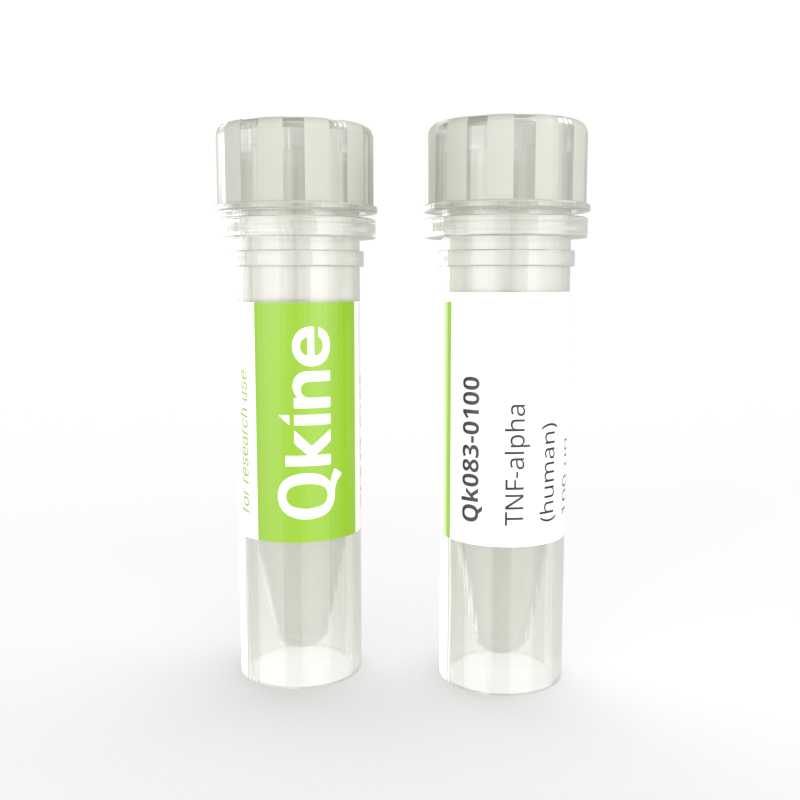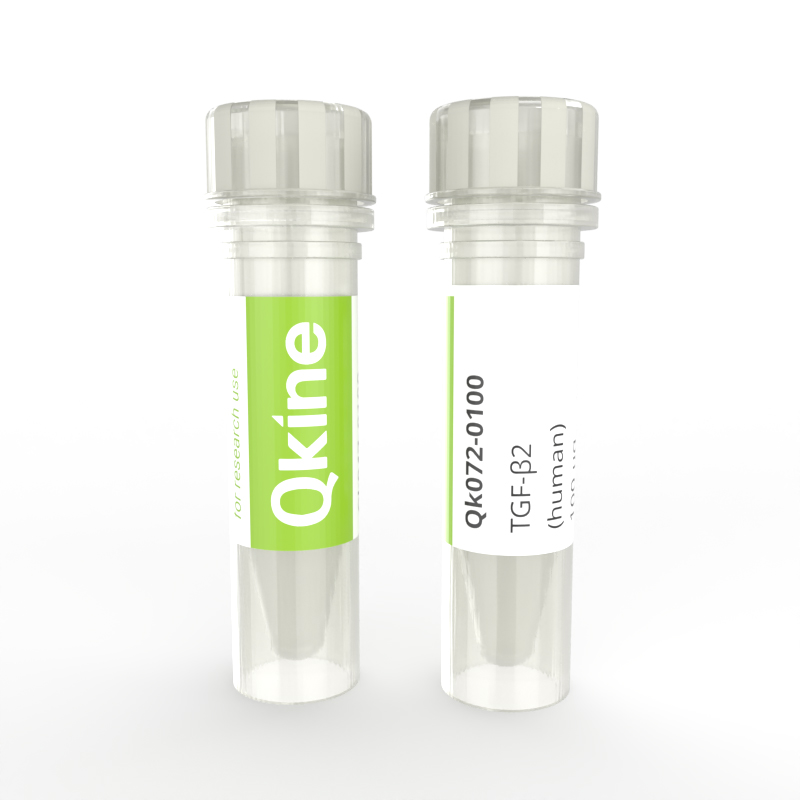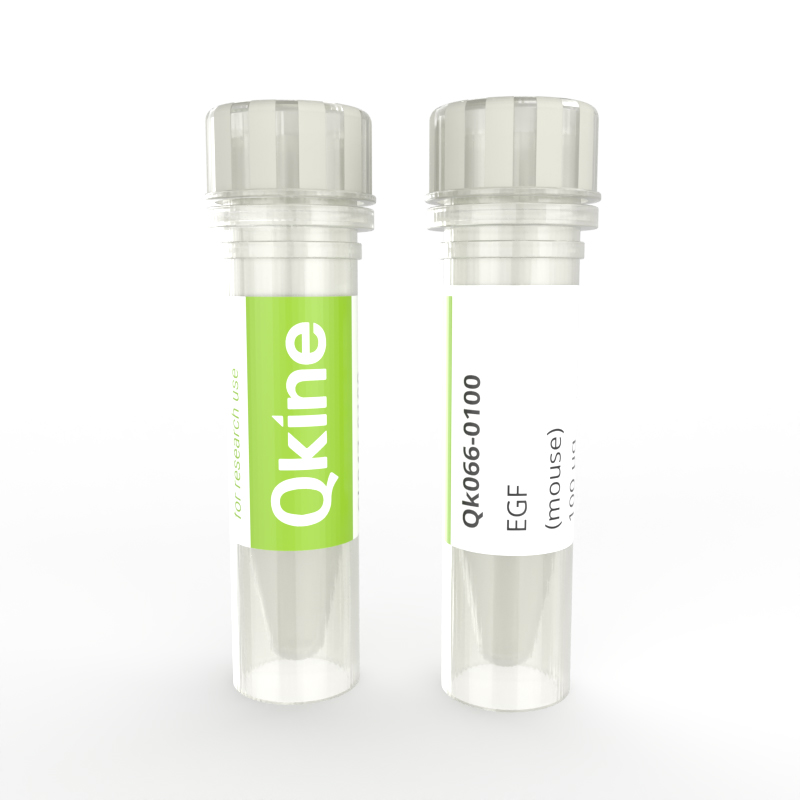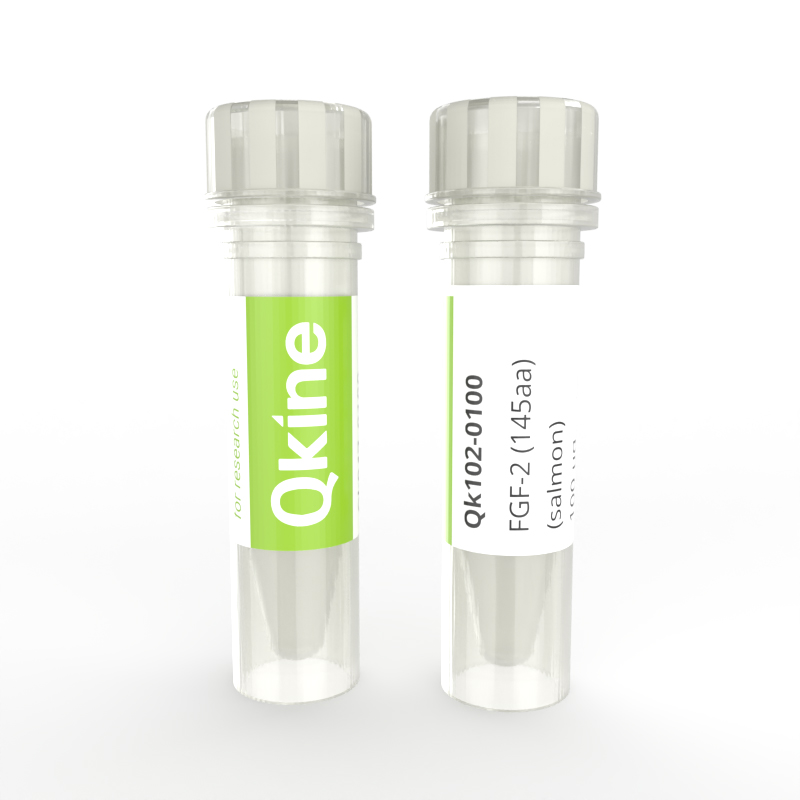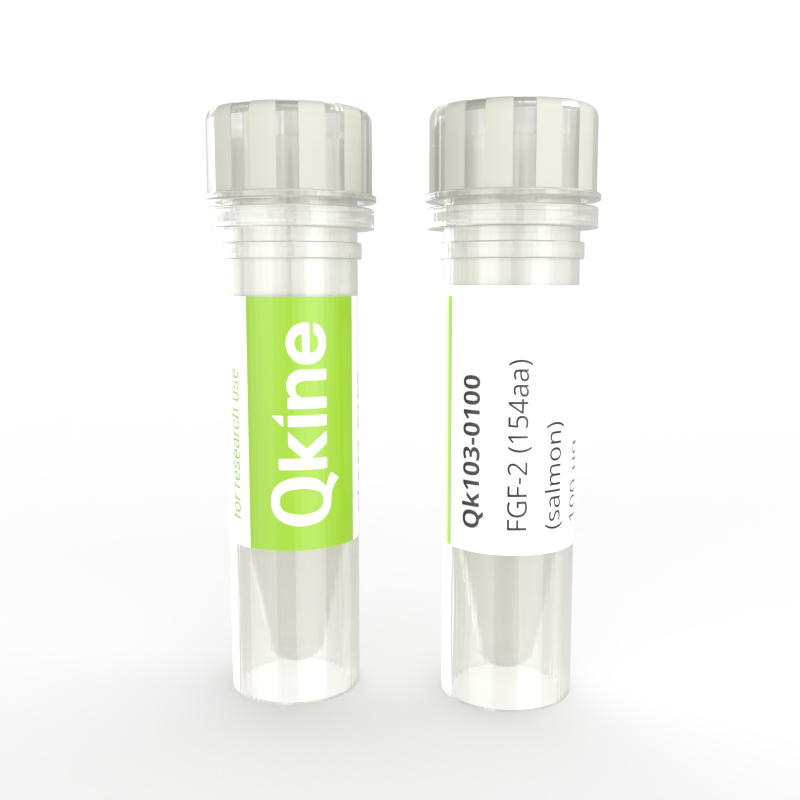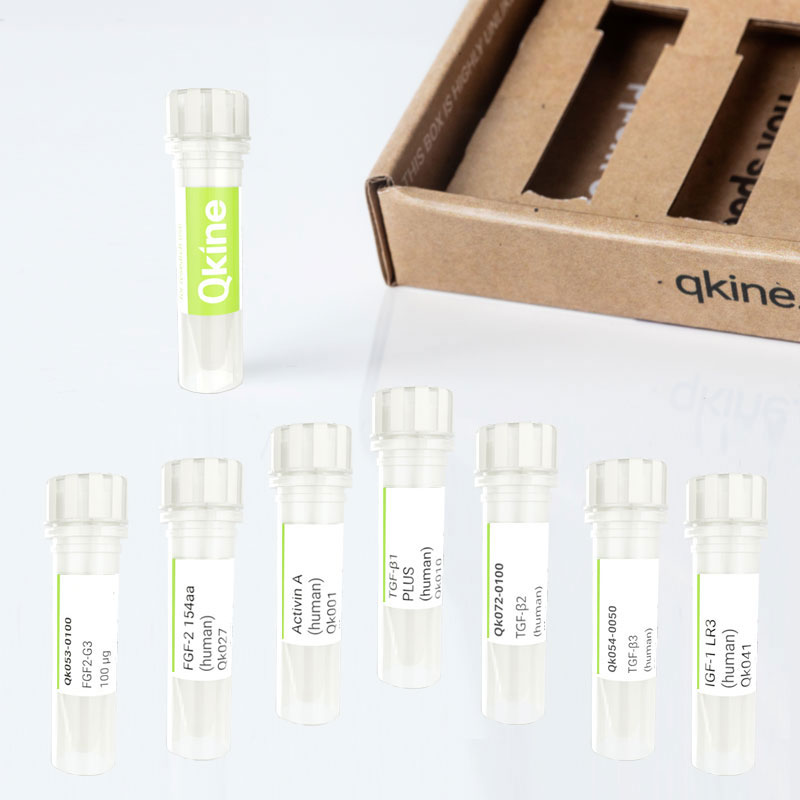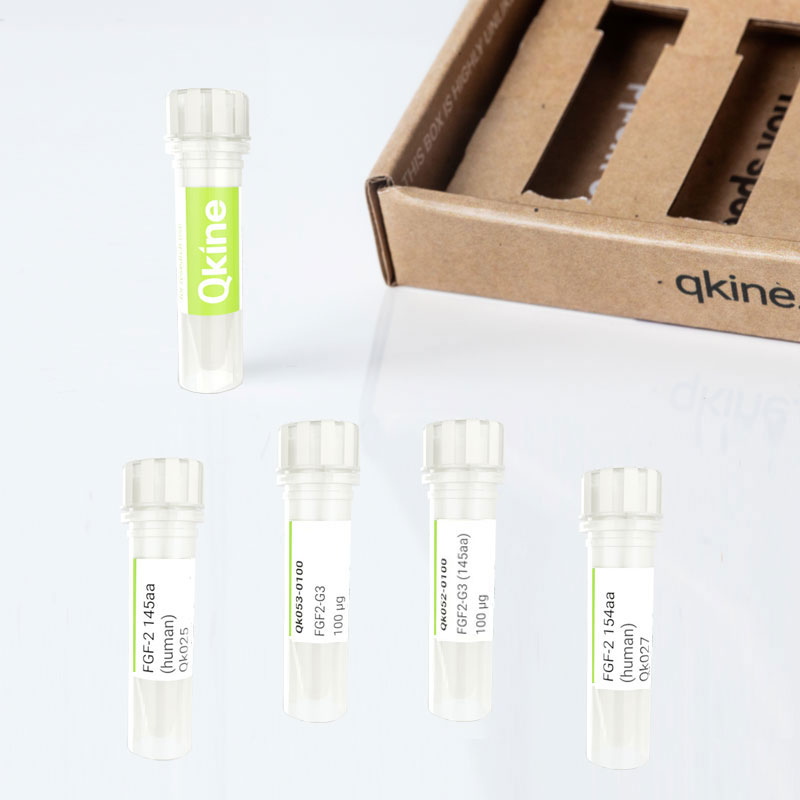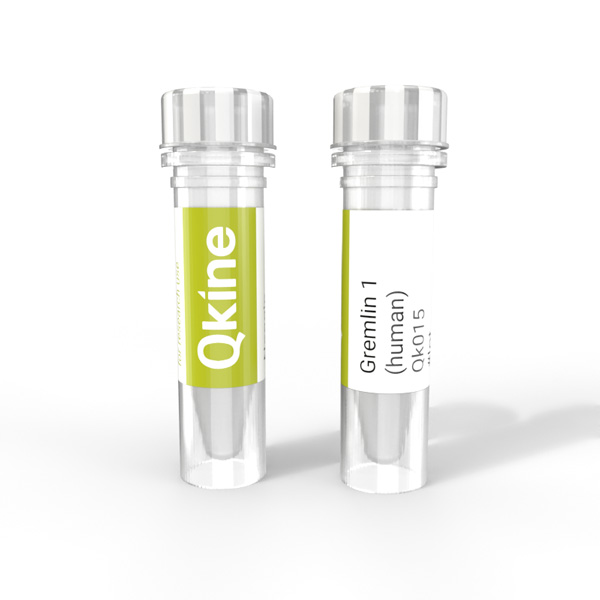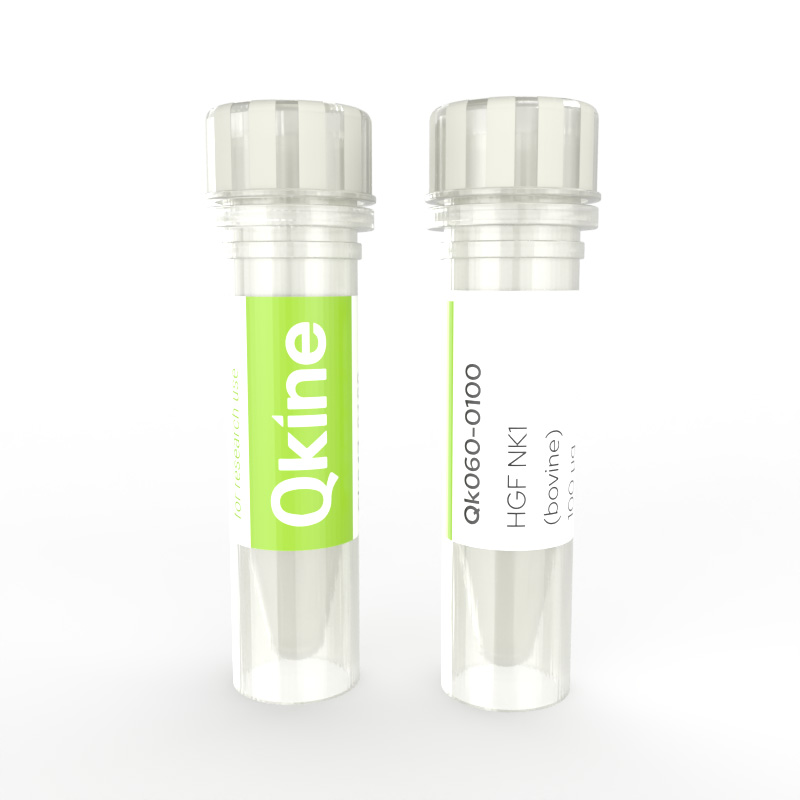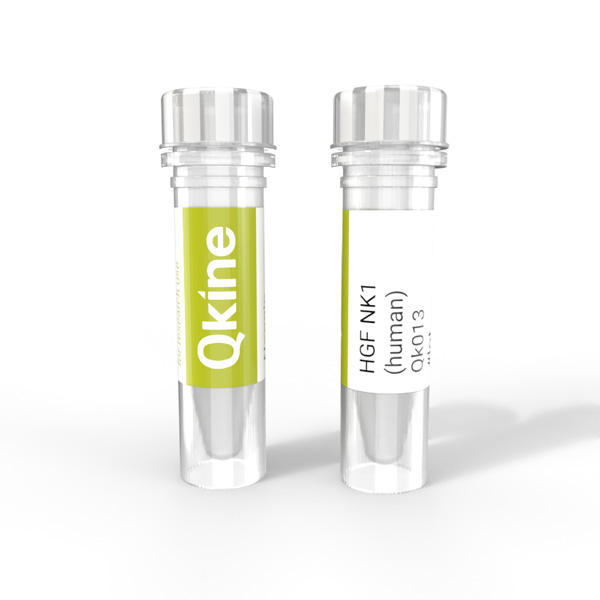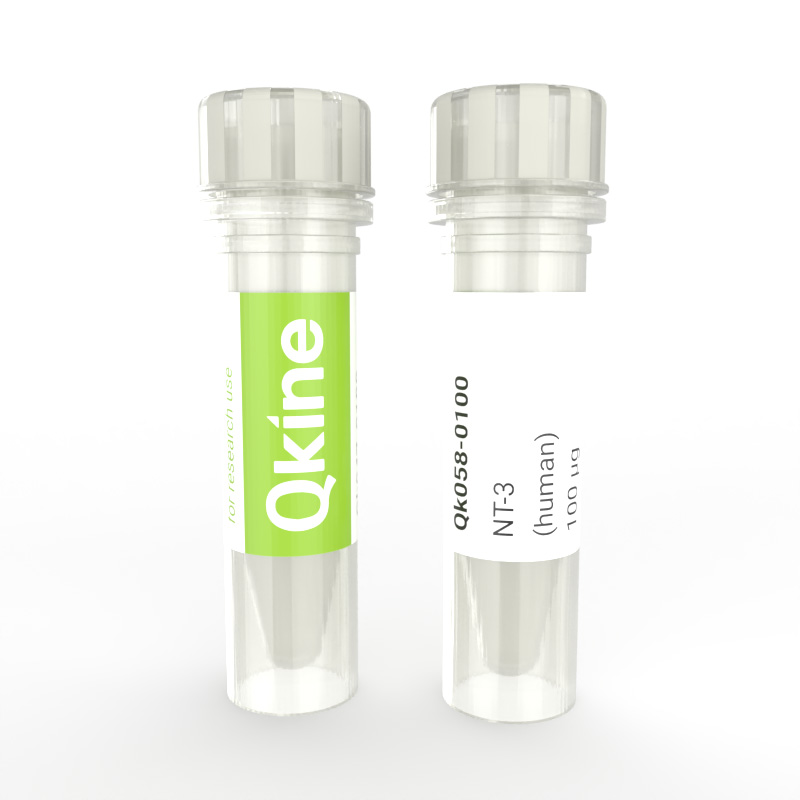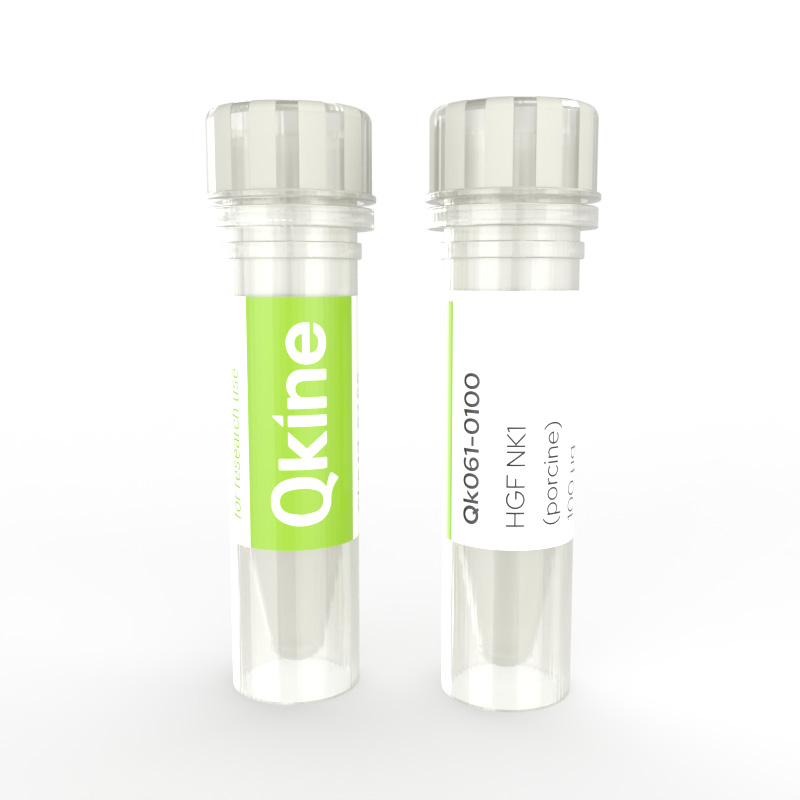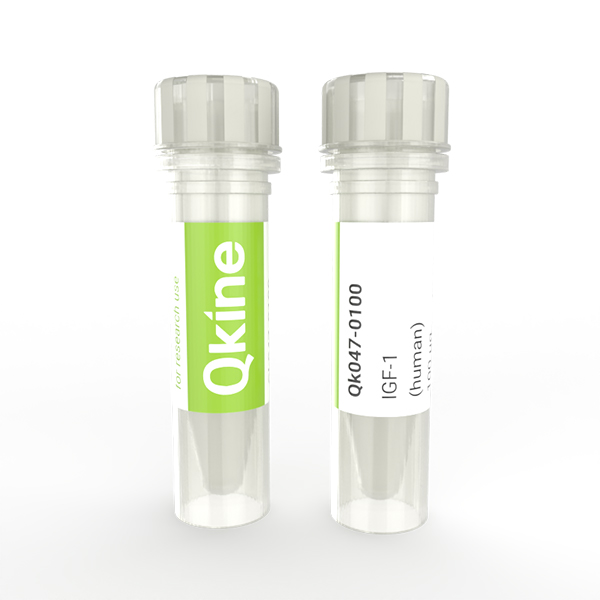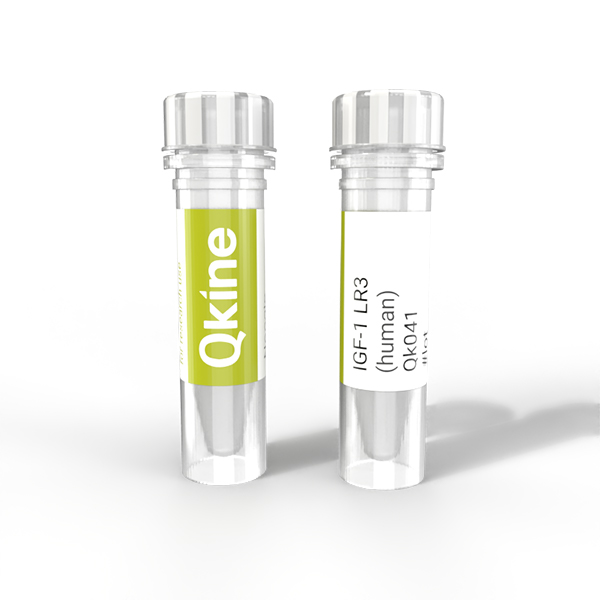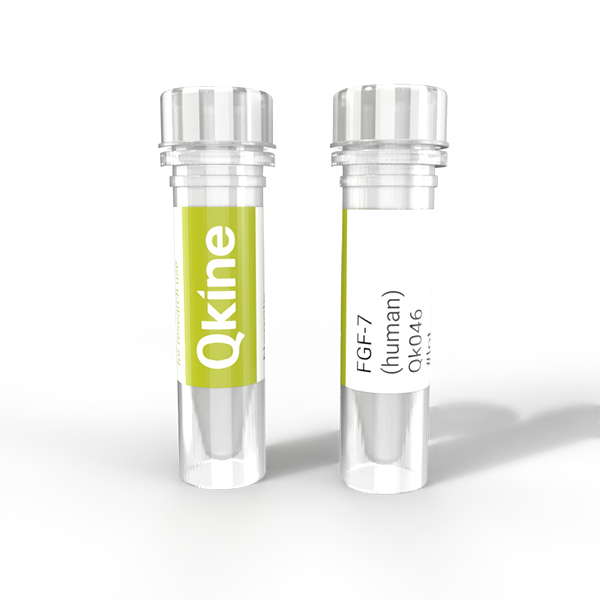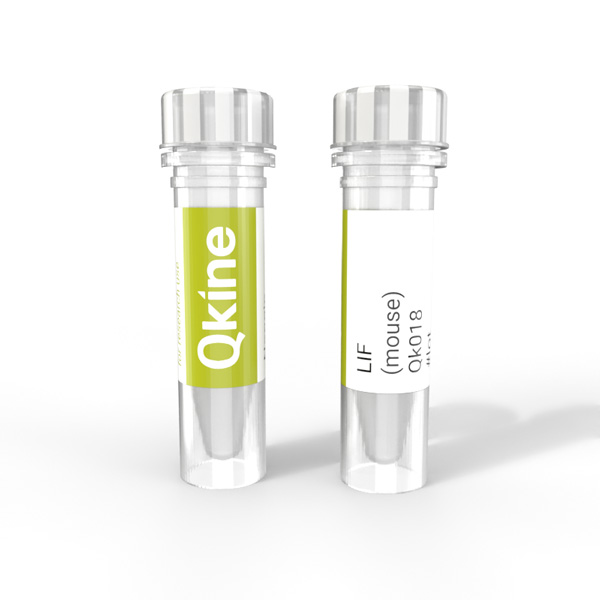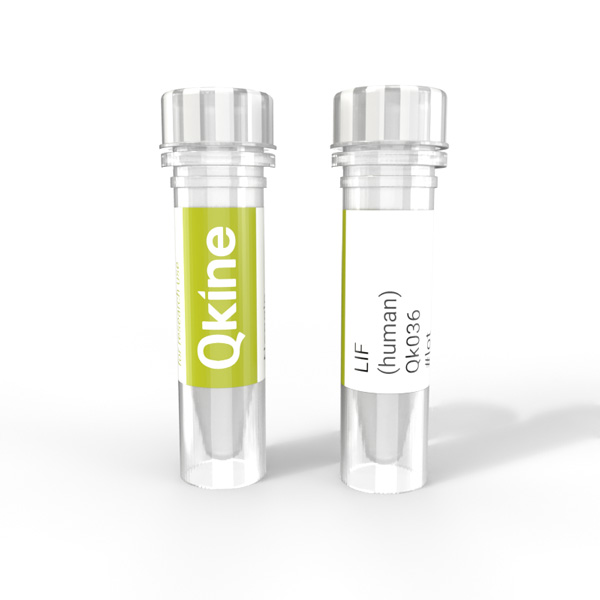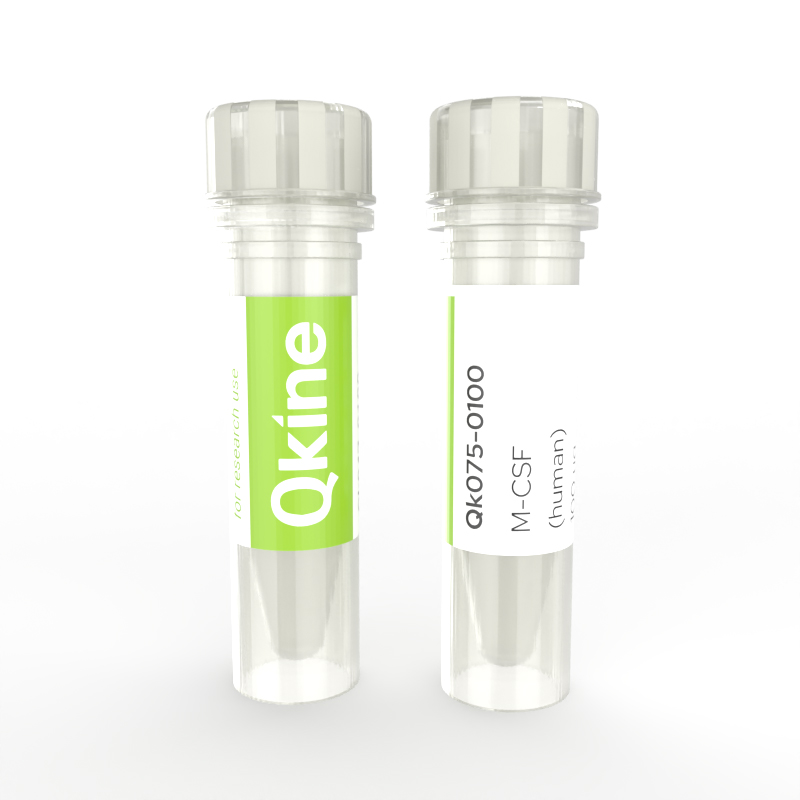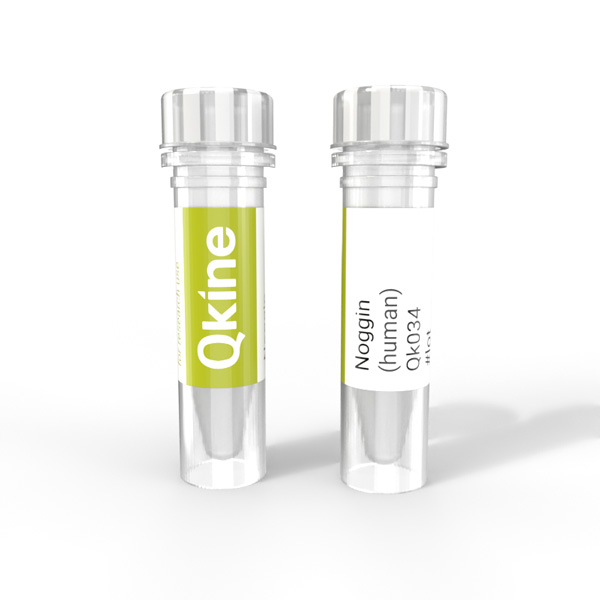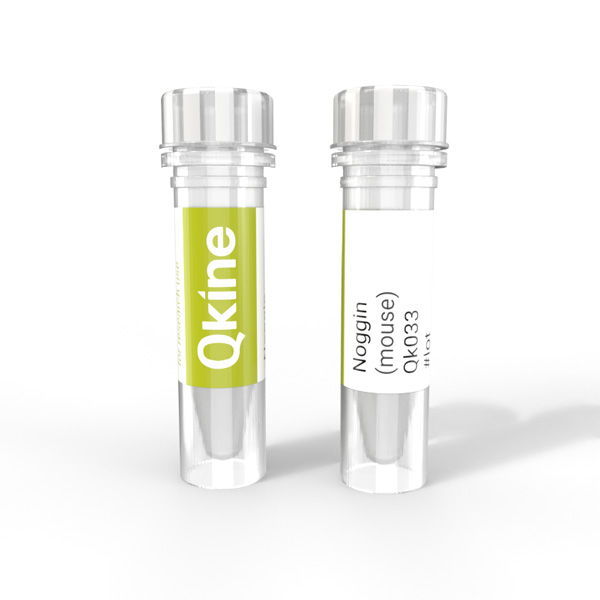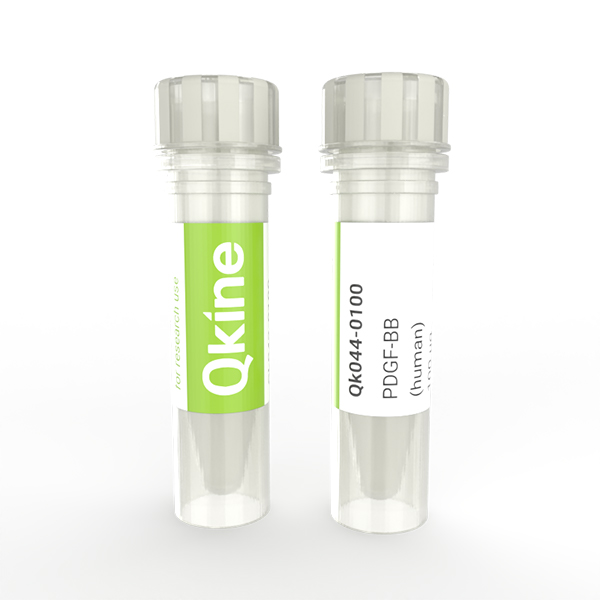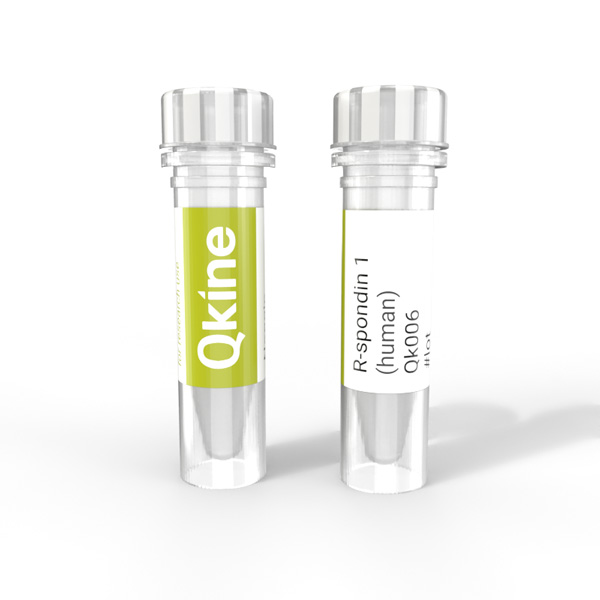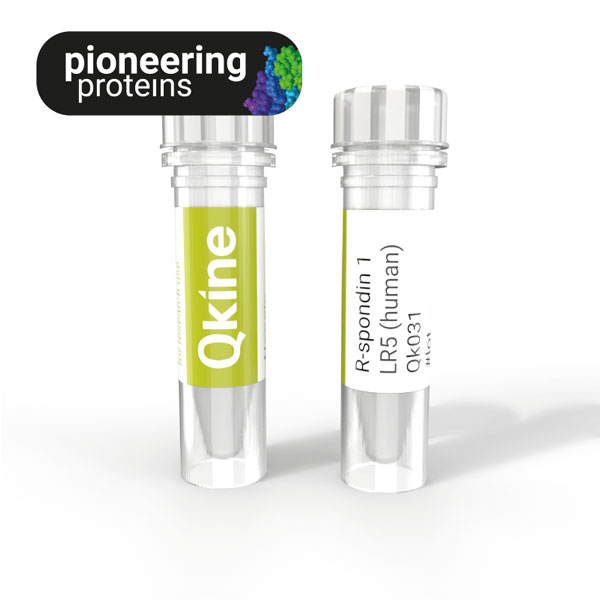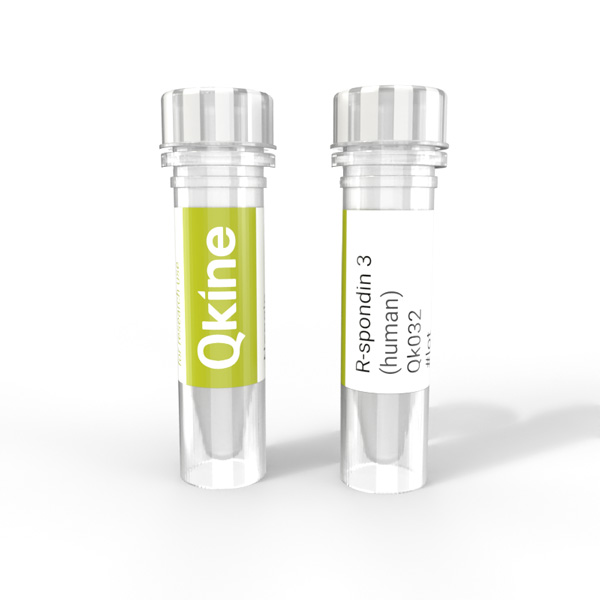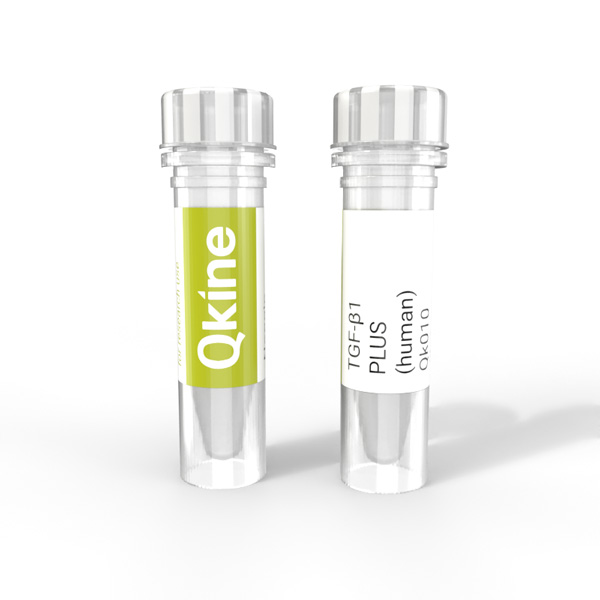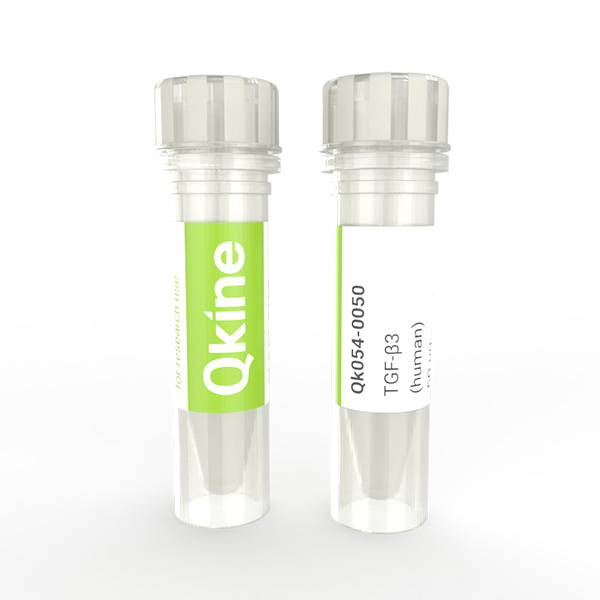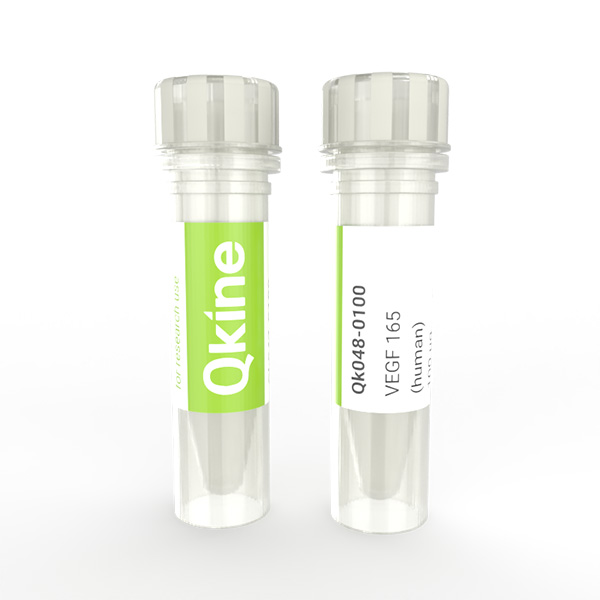| Recombinant human/mouse/rat/bovine/porcine Activin A protein (Qk001) | $280.00 – $3,950.00 | Show details | growth-factor-cytokine activin-proteins bovine cellular-agriculture hepatocyte ipsc-esc-maintenance pluripotent-stem-cells-ipsc-esc tgf-beta-family growth-factor-cytokine-by-species growth-factor-cytokine-by-research-area growth-factor-cytokine-by-cell-type |
| Recombinant human/mouse/rat Activin A PLUS ™ protein (Qk005) | $210.00 – $3,100.00 | Show details | growth-factor-cytokine activin-proteins hepatocyte ipsc-esc-maintenance optimised-by-qkine pluripotent-stem-cells-ipsc-esc tgf-beta-family growth-factor-cytokine-by-research-area growth-factor-cytokine-by-cell-type |
| Recombinant human/mouse/rat follistatin-resistant Activin A protein (Qk035) | $280.00 – $3,950.00 | Show details | growth-factor-cytokine ipsc-esc-maintenance optimised-by-qkine pioneering-proteins pluripotent-stem-cells-ipsc-esc tgf-beta-family growth-factor-cytokine-by-research-area growth-factor-cytokine-by-cell-type |
| Recombinant human BDNF protein (Qk050) | $280.00 – $3,950.00 | Show details | human neural neuronal-cells neurotrophin organoid growth-factor-cytokine-by-species growth-factor-cytokine-by-research-area growth-factor-cytokine-by-cell-type growth-factor-cytokine |
| Recombinant human/mouse/rat/bovine/porcine BMP-2 protein (Qk007) | $280.00 – $3,950.00 | Show details | growth-factor-cytokine bmp-family bovine human mouse pluripotent-stem-cells-ipsc-esc porcine rat tgf-beta-family growth-factor-cytokine-by-species growth-factor-cytokine-by-cell-type |
| Recombinant human BMP-4 protein (Qk038) | $280.00 – $3,950.00 | Show details | growth-factor-cytokine bmp-family epithelial hepatocyte human ipsc-esc-maintenance mesenchymal neural organoid pluripotent-stem-cells-ipsc-esc tgf-beta-family growth-factor-cytokine-by-cell-type growth-factor-cytokine-by-research-area growth-factor-cytokine-by-species |
| Recombinant human CNTF protein (Qk063) | $210.00 – $2,600.00 | Show details | growth-factor-cytokine il-superfamily ipscs-differentiation neural pluripotent-stem-cells-ipsc-esc growth-factor-cytokine-by-research-area growth-factor-cytokine-by-cell-type |
| Recombinant human DKK-1 protein (Qk068) | $355.00 – $4,950.00 | Show details | growth-factor-cytokine dkk-family human ipscs-differentiation mesenchymal neural pluripotent-stem-cells-ipsc-esc growth-factor-cytokine-by-species growth-factor-cytokine-by-research-area growth-factor-cytokine-by-cell-type |
| Recombinant human EGF protein (Qk011) | $80.00 – $260.00 | Show details | growth-factor-cytokine egf-family epithelial human ipsc-esc-maintenance neural organoid pluripotent-stem-cells-ipsc-esc growth-factor-cytokine-by-cell-type growth-factor-cytokine-by-species growth-factor-cytokine-by-research-area |
| Recombinant porcine EGF protein (Qk064) | $80.00 – $260.00 | Show details | growth-factor-cytokine cellular-agriculture egf-family organoid pluripotent-stem-cells-ipsc-esc growth-factor-cytokine-by-research-area growth-factor-cytokine-by-cell-type |
| Recombinant human FGF-2 (bFGF) 145 aa protein (Qk025) | $160.00 – $920.00 | Show details | growth-factor-cytokine fgf-family human ipsc-esc-maintenance organoid pluripotent-stem-cells-ipsc-esc growth-factor-cytokine-by-species growth-factor-cytokine-by-research-area growth-factor-cytokine-by-cell-type |
| Recombinant human FGF-2 (bFGF) 154 aa protein (Qk027) | $160.00 – $920.00 | Show details | growth-factor-cytokine fgf-family human ipsc-esc-maintenance organoid pluripotent-stem-cells-ipsc-esc growth-factor-cytokine-by-species growth-factor-cytokine-by-research-area growth-factor-cytokine-by-cell-type |
| Recombinant FGF2-G3 145 aa protein (Qk052) | $185.00 – $1,050.00 | Show details | growth-factor-cytokine cellular-agriculture fgf-family human mouse neural optimised-by-qkine organoid pluripotent-stem-cells-ipsc-esc porcine rat growth-factor-cytokine-by-research-area growth-factor-cytokine-by-species growth-factor-cytokine-by-cell-type |
| Recombinant FGF2-G3 protein (Qk053) | $185.00 – $1,050.00 | Show details | growth-factor-cytokine bovine fgf-family human mouse optimised-by-qkine pluripotent-stem-cells-ipsc-esc porcine rat growth-factor-cytokine-by-species growth-factor-cytokine-by-research-area growth-factor-cytokine-by-cell-type |
| Recombinant bovine/porcine FGF-2 (bFGF) 145aa protein (Qk040) | $160.00 – $920.00 | Show details | growth-factor-cytokine bovine cellular-agriculture fgf-family ipsc-esc-maintenance organoid pluripotent-stem-cells-ipsc-esc porcine growth-factor-cytokine-by-species growth-factor-cytokine-by-research-area growth-factor-cytokine-by-cell-type |
| Recombinant bovine/porcine FGF-2 (bFGF) 154 aa protein (Qk056) | $160.00 – $920.00 | Show details | growth-factor-cytokine bovine cellular-agriculture fgf-family ipsc-esc-maintenance pluripotent-stem-cells-ipsc-esc porcine growth-factor-cytokine-by-species growth-factor-cytokine-by-research-area growth-factor-cytokine-by-cell-type |
| Recombinant mouse FGF-2 (bFGF) protein (Qk042) | $160.00 – $920.00 | Show details | growth-factor-cytokine fgf-family ipsc-esc-maintenance mouse mouse-es-cell organoid pluripotent-stem-cells-ipsc-esc growth-factor-cytokine-by-research-area growth-factor-cytokine-by-species growth-factor-cytokine-by-cell-type |
| Recombinant zebrafish FGF-2 (bFGF) protein (Qk002) | $150.00 – $575.00 | Show details | growth-factor-cytokine fgf-family hepatocyte ipsc-esc-maintenance organoid pluripotent-stem-cells-ipsc-esc growth-factor-cytokine-by-research-area growth-factor-cytokine-by-cell-type |
| Recombinant human FGF-4 protein (Qk004) | $270.00 – $1,900.00 | Show details | growth-factor-cytokine fgf-family human ipsc-esc-maintenance pluripotent-stem-cells-ipsc-esc growth-factor-cytokine-by-species growth-factor-cytokine-by-research-area growth-factor-cytokine-by-cell-type |
| Recombinant human/rat/bovine/porcine FGF-10 protein (Qk003) | $170.00 – $1,900.00 | Show details | growth-factor-cytokine bovine fgf-family hepatocyte human organoid pluripotent-stem-cells-ipsc-esc porcine rat growth-factor-cytokine-by-species growth-factor-cytokine-by-research-area growth-factor-cytokine-by-cell-type |
| Recombinant human / mouse FGF-8a protein (Qk059) | $210.00 – $3,100.00 | Show details | growth-factor-cytokine fgf-family human neural pluripotent-stem-cells-ipsc-esc growth-factor-cytokine-by-species growth-factor-cytokine-by-research-area growth-factor-cytokine-by-cell-type |
| Recombinant human / mouse FGF-8b protein (Qk057) | $210.00 – $3,100.00 | Show details | growth-factor-cytokine fgf-family human neural pluripotent-stem-cells-ipsc-esc growth-factor-cytokine-by-species growth-factor-cytokine-by-research-area growth-factor-cytokine-by-cell-type |
| Recombinant human FGF-9 protein (Qk039) | $210.00 – $2,600.00 | Show details | fgf-family human mesenchymal neural organoid growth-factor-cytokine growth-factor-cytokine-by-species growth-factor-cytokine-by-cell-type growth-factor-cytokine-by-research-area |
| Recombinant human G-CSF protein (Qk074) | $280.00 – $3,950.00 | Show details | growth-factor-cytokine csf-family hematopoietic human immune pluripotent-stem-cells-ipsc-esc growth-factor-cytokine-by-cell-type growth-factor-cytokine-by-species growth-factor-cytokine-by-research-area |
| Recombinant human GDNF protein (Qk051) | $280.00 – $3,950.00 | Show details | growth-factor-cytokine human neural neuronal-cells neurotrophin organoid pluripotent-stem-cells-ipsc-esc growth-factor-cytokine-by-species growth-factor-cytokine-by-research-area growth-factor-cytokine-by-cell-type |
| Recombinant human GDF-15 protein (Qk017) | $280.00 – $3,950.00 | Show details | biomarkers human tgf-beta-family growth-factor-cytokine-by-research-area growth-factor-cytokine-by-species growth-factor-cytokine |
| Recombinant human FGF-1 protein (Qk071) | $185.00 – $1,050.00 | Show details | growth-factor-cytokine fgf-family human neural pluripotent-stem-cells-ipsc-esc growth-factor-cytokine-by-species growth-factor-cytokine-by-research-area growth-factor-cytokine-by-cell-type |
| Recombinant human Flt3L protein (Qk087) | $355.00 – $4,950.00 | Show details | growth-factor-cytokine hematopoietic human immune natural-killer-cells-nk growth-factor-cytokine-by-cell-type growth-factor-cytokine-by-species growth-factor-cytokine-by-research-area |
| Recombinant human GDF-5 protein (Qk070) | $280.00 – $3,950.00 | Show details | growth-factor-cytokine bmp-family human mesenchymal tgf-beta-family growth-factor-cytokine-by-species growth-factor-cytokine-by-cell-type |
| Recombinant human GM-CSF protein (Qk076) | $280.00 – $3,950.00 | Show details | growth-factor-cytokine csf-family dendritic-cells human immune pluripotent-stem-cells-ipsc-esc t-cells growth-factor-cytokine-by-cell-type growth-factor-cytokine-by-species growth-factor-cytokine-by-research-area |
| Recombinant human IL-1 beta protein (Qk101) | $355.00 – $4,950.00 | Show details | growth-factor-cytokine dendritic-cells hematopoietic human il-superfamily immune mesenchymal t-cells growth-factor-cytokine-by-cell-type growth-factor-cytokine-by-species growth-factor-cytokine-by-research-area |
| Recombinant human IL-3 protein (Qk090) | $280.00 – $3,950.00 | Show details | growth-factor-cytokine hematopoietic human il-superfamily immune natural-killer-cells-nk t-cells growth-factor-cytokine-by-cell-type growth-factor-cytokine-by-species growth-factor-cytokine-by-research-area |
| B8 media discovery kit (Qk503) | $1,845.00 $785.00 | Show details | growth-factor-cytokine cellular-agriculture growth-factor-cytokine-by-research-area |
| Beefy9 media growth factor discovery kit (Qk504) | $2,275.00 $785.00 | Show details | growth-factor-cytokine cellular-agriculture growth-factor-cytokine-by-research-area |
| FGF-2 species-specific discovery kit (Qk501) | $1,025.00 $395.00 | Show details | growth-factor-cytokine cellular-agriculture growth-factor-cytokine-by-research-area |
| Recombinant bovine/porcine FGF2-G3 145 aa protein (Qk080) | $185.00 – $1,050.00 | Show details | growth-factor-cytokine bovine cellular-agriculture endothelial-cells fgf-family ipsc-esc-maintenance mesenchymal pluripotent-stem-cells-ipsc-esc porcine growth-factor-cytokine-by-species growth-factor-cytokine-by-research-area growth-factor-cytokine-by-cell-type |
| Recombinant bovine/porcine FGF2-G3 154 aa protein (Qk081) | $185.00 – $1,050.00 | Show details | growth-factor-cytokine bovine cellular-agriculture endothelial-cells fgf-family ipsc-esc-maintenance mesenchymal pluripotent-stem-cells-ipsc-esc porcine growth-factor-cytokine-by-species growth-factor-cytokine-by-research-area growth-factor-cytokine-by-cell-type |
| Recombinant human IL-4 protein (Qk092) | $280.00 – $3,950.00 | Show details | growth-factor-cytokine dendritic-cells hematopoietic human il-superfamily ipscs-differentiation pluripotent-stem-cells-ipsc-esc growth-factor-cytokine-by-cell-type growth-factor-cytokine-by-species growth-factor-cytokine-by-research-area |
| Recombinant human IL-6 protein (Qk093) | $280.00 – $3,950.00 | Show details | growth-factor-cytokine dendritic-cells hematopoietic human il-superfamily ipscs-differentiation natural-killer-cells-nk pluripotent-stem-cells-ipsc-esc growth-factor-cytokine-by-cell-type growth-factor-cytokine-by-species growth-factor-cytokine-by-research-area |
| Recombinant human TNF-alpha protein (Qk083) | $170.00 – $1,900.00 | Show details | growth-factor-cytokine dendritic-cells hematopoietic human immune pluripotent-stem-cells-ipsc-esc growth-factor-cytokine-by-cell-type growth-factor-cytokine-by-species growth-factor-cytokine-by-research-area |
| Recombinant human/bovine/porcine TGF-β2 protein (Qk072) | $355.00 – $4,950.00 | Show details | growth-factor-cytokine bovine hematopoietic human immune ipsc-esc-maintenance ipscs-differentiation pluripotent-stem-cells-ipsc-esc porcine tgf-beta-family growth-factor-cytokine-by-species growth-factor-cytokine-by-cell-type growth-factor-cytokine-by-research-area |
| Recombinant mouse EGF protein (Qk066) | $80.00 – $260.00 | Show details | egf-family epithelial ipsc-esc-maintenance mouse neural organoid pluripotent-stem-cells-ipsc-esc growth-factor-cytokine growth-factor-cytokine-by-cell-type growth-factor-cytokine-by-research-area growth-factor-cytokine-by-species |
| Recombinant salmon FGF-2 (145aa) protein (Qk102) | $160.00 – $920.00 | Show details | cellular-agriculture fgf-family pluripotent-stem-cells-ipsc-esc growth-factor-cytokine-by-research-area growth-factor-cytokine growth-factor-cytokine-by-cell-type |
| Recombinant salmon FGF-2 (154aa) protein (Qk103) | $160.00 – $920.00 | Show details | cellular-agriculture fgf-family pluripotent-stem-cells-ipsc-esc growth-factor-cytokine-by-research-area growth-factor-cytokine growth-factor-cytokine-by-cell-type |
| Serum-free media optimization growth factor discovery kit (Qk505) | $2,145.00 $785.00 | Show details | growth-factor-cytokine cellular-agriculture growth-factor-cytokine-by-research-area |
| Thermostable FGF-2 discovery kit (Qk502) | $690.00 $395.00 | Show details | growth-factor-cytokine cellular-agriculture growth-factor-cytokine-by-research-area |
| Recombinant human/bovine/porcine Gremlin 1 protein (Qk015) | $185.00 – $1,050.00 | Show details | growth-factor-cytokine bmp-family bovine human ipsc-esc-maintenance optimised-by-qkine organoid pluripotent-stem-cells-ipsc-esc porcine tgf-beta-family growth-factor-cytokine-by-species growth-factor-cytokine-by-research-area growth-factor-cytokine-by-cell-type |
| Recombinant bovine HGF (NK1) protein (Qk060) | $170.00 – $1,900.00 | Show details | growth-factor-cytokine bovine cellular-agriculture hepatocyte plasminogen-gf-family-hgf optimised-by-qkine organoid pluripotent-stem-cells-ipsc-esc growth-factor-cytokine-by-species growth-factor-cytokine-by-research-area growth-factor-cytokine-by-cell-type |
| Recombinant human HGF (NK1) protein (Qk013) | $170.00 – $1,900.00 | Show details | growth-factor-cytokine hepatocyte plasminogen-gf-family-hgf human optimised-by-qkine organoid pluripotent-stem-cells-ipsc-esc growth-factor-cytokine-by-research-area growth-factor-cytokine-by-species growth-factor-cytokine-by-cell-type |
| Recombinant human / mouse / rat / porcine NT-3 protein (Qk058) | $355.00 – $4,950.00 | Show details | growth-factor-cytokine hepatocyte human neural neuronal-cells neurotrophin organoid pluripotent-stem-cells-ipsc-esc growth-factor-cytokine-by-research-area growth-factor-cytokine-by-species growth-factor-cytokine-by-cell-type |
| Recombinant porcine HGF (NK1) protein (Qk061) | $170.00 – $1,900.00 | Show details | growth-factor-cytokine cellular-agriculture hepatocyte plasminogen-gf-family-hgf optimised-by-qkine organoid pluripotent-stem-cells-ipsc-esc porcine growth-factor-cytokine-by-research-area growth-factor-cytokine-by-cell-type growth-factor-cytokine-by-species |
| Recombinant human/bovine/porcine IGF-1 protein (Qk047) | $80.00 – $260.00 | Show details | epithelial hematopoietic human igf-family ipsc-esc-maintenance neural pluripotent-stem-cells-ipsc-esc growth-factor-cytokine-by-cell-type growth-factor-cytokine-by-species growth-factor-cytokine growth-factor-cytokine-by-research-area |
| Recombinant human/bovine/porcine IGF-1 LR3 protein (Qk041) | $80.00 – $260.00 | Show details | epithelial hematopoietic human igf-family ipsc-esc-maintenance neural pluripotent-stem-cells-ipsc-esc growth-factor-cytokine-by-cell-type growth-factor-cytokine-by-species growth-factor-cytokine growth-factor-cytokine-by-research-area |
| Recombinant human KGF (FGF-7) protein (Qk046) | $355.00 – $4,950.00 | Show details | epithelial fgf-family human organoid growth-factor-cytokine-by-cell-type growth-factor-cytokine growth-factor-cytokine-by-species growth-factor-cytokine-by-research-area |
| Recombinant mouse LIF protein (Qk018) | $210.00 – $2,600.00 | Show details | il-superfamily ipsc-esc-maintenance mouse mouse-es-cell pluripotent-stem-cells-ipsc-esc growth-factor-cytokine growth-factor-cytokine-by-research-area growth-factor-cytokine-by-species growth-factor-cytokine-by-cell-type |
| Recombinant human LIF protein (Qk036) | $210.00 – $2,600.00 | Show details | human il-superfamily ipsc-esc-maintenance mouse-es-cell neural pluripotent-stem-cells-ipsc-esc growth-factor-cytokine-by-species growth-factor-cytokine growth-factor-cytokine-by-research-area growth-factor-cytokine-by-cell-type |
| Recombinant human M-CSF protein (Qk075) | $280.00 – $3,950.00 | Show details | growth-factor-cytokine csf-family hematopoietic immune pluripotent-stem-cells-ipsc-esc growth-factor-cytokine-by-cell-type growth-factor-cytokine-by-research-area |
| Recombinant human/bovine/porcine NRG-1 protein (Qk045) | $185.00 – $1,050.00 | Show details | bovine cellular-agriculture egf-family human ipsc-esc-maintenance neural pluripotent-stem-cells-ipsc-esc porcine growth-factor-cytokine-by-species growth-factor-cytokine-by-research-area growth-factor-cytokine growth-factor-cytokine-by-cell-type |
| Recombinant human noggin protein (Qk034) | $280.00 – $3,950.00 | Show details | growth-factor-cytokine bmp-family human ipsc-esc-maintenance mouse-es-cell neural organoid pluripotent-stem-cells-ipsc-esc tgf-beta-family growth-factor-cytokine-by-species growth-factor-cytokine-by-research-area growth-factor-cytokine-by-cell-type |
| Recombinant mouse/rat noggin protein (Qk033) | $280.00 – $3,950.00 | Show details | growth-factor-cytokine bmp-family epithelial ipsc-esc-maintenance mouse mouse-es-cell neural organoid pluripotent-stem-cells-ipsc-esc rat tgf-beta-family growth-factor-cytokine-by-cell-type growth-factor-cytokine-by-research-area growth-factor-cytokine-by-species |
| Recombinant human Oncostatin M (OSM) protein (Qk049) | $280.00 – $3,950.00 | Show details | growth-factor-cytokine cellular-agriculture hematopoietic hepatocyte human il-superfamily ipsc-esc-maintenance neural pluripotent-stem-cells-ipsc-esc growth-factor-cytokine-by-research-area growth-factor-cytokine-by-cell-type growth-factor-cytokine-by-species |
| Recombinant human PDGF-AA protein (Qk043) | $280.00 – $3,950.00 | Show details | growth-factor-cytokine human neural pdgf-family pluripotent-stem-cells-ipsc-esc growth-factor-cytokine-by-species growth-factor-cytokine-by-research-area growth-factor-cytokine-by-cell-type |
| Recombinant human PDGF-BB protein (Qk044) | $280.00 – $3,950.00 | Show details | growth-factor-cytokine human neural pdgf-family pluripotent-stem-cells-ipsc-esc growth-factor-cytokine-by-species growth-factor-cytokine-by-research-area growth-factor-cytokine-by-cell-type |
| Recombinant human R-spondin 1 protein (Qk006) | $210.00 – $2,600.00 | Show details | growth-factor-cytokine human ipsc-esc-maintenance optimised-by-qkine organoid pluripotent-stem-cells-ipsc-esc r-spondins growth-factor-cytokine-by-species growth-factor-cytokine-by-research-area growth-factor-cytokine-by-cell-type |
| Recombinant human R-spondin 1 LR5 protein (Qk031) | $210.00 – $2,600.00 | Show details | growth-factor-cytokine ipsc-esc-maintenance optimised-by-qkine organoid pioneering-proteins pluripotent-stem-cells-ipsc-esc r-spondins growth-factor-cytokine-by-research-area growth-factor-cytokine-by-cell-type |
| Recombinant human R-spondin 3 protein (Qk032) | $210.00 – $2,600.00 | Show details | growth-factor-cytokine human optimised-by-qkine organoid pluripotent-stem-cells-ipsc-esc r-spondins growth-factor-cytokine-by-species growth-factor-cytokine-by-research-area growth-factor-cytokine-by-cell-type |
| Recombinant human Shh protein (Qk055) | $210.00 – $2,600.00 | Show details | growth-factor-cytokine hedgehog-family hepatocyte human neural organoid pluripotent-stem-cells-ipsc-esc growth-factor-cytokine-by-research-area growth-factor-cytokine-by-species growth-factor-cytokine-by-cell-type |
| Recombinant human/bovine/porcine TGF-β1 PLUS ™ protein (Qk010) | $355.00 – $4,950.00 | Show details | bovine human ipsc-esc-maintenance optimised-by-qkine pluripotent-stem-cells-ipsc-esc porcine tgf-beta-family growth-factor-cytokine-by-species growth-factor-cytokine-by-research-area growth-factor-cytokine-by-cell-type growth-factor-cytokine |
| Recombinant human TGF-β3 protein (Qk054) | $355.00 – $4,950.00 | Show details | human ipsc-esc-maintenance tgf-beta-family growth-factor-cytokine-by-species growth-factor-cytokine-by-research-area growth-factor-cytokine |
| Recombinant human VEGF165 protein (Qk048) | $280.00 – $3,950.00 | Show details | growth-factor-cytokine endothelial-cells human mesenchymal neural organoid pdgf-family pluripotent-stem-cells-ipsc-esc growth-factor-cytokine-by-cell-type growth-factor-cytokine-by-species growth-factor-cytokine-by-research-area |
